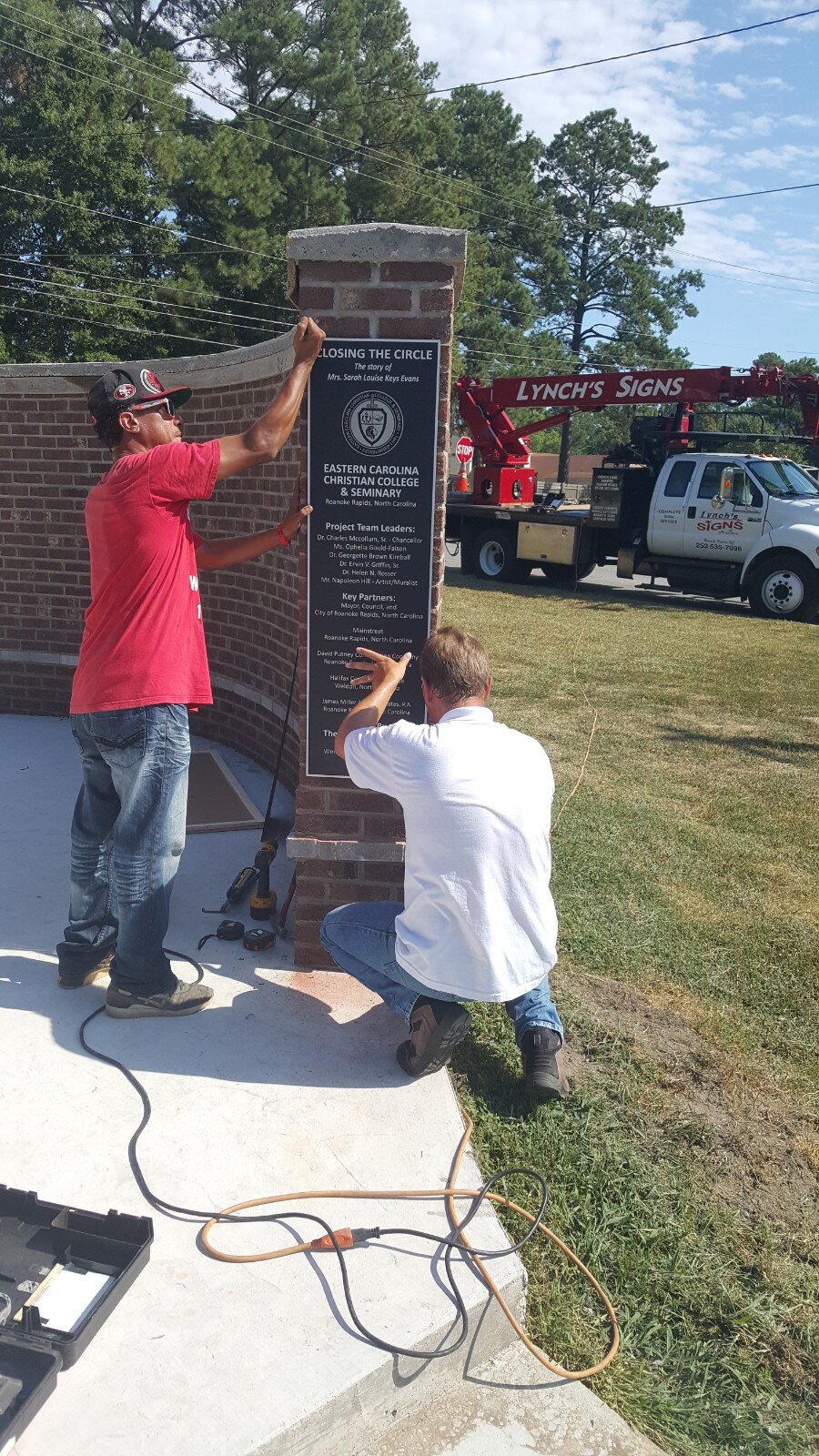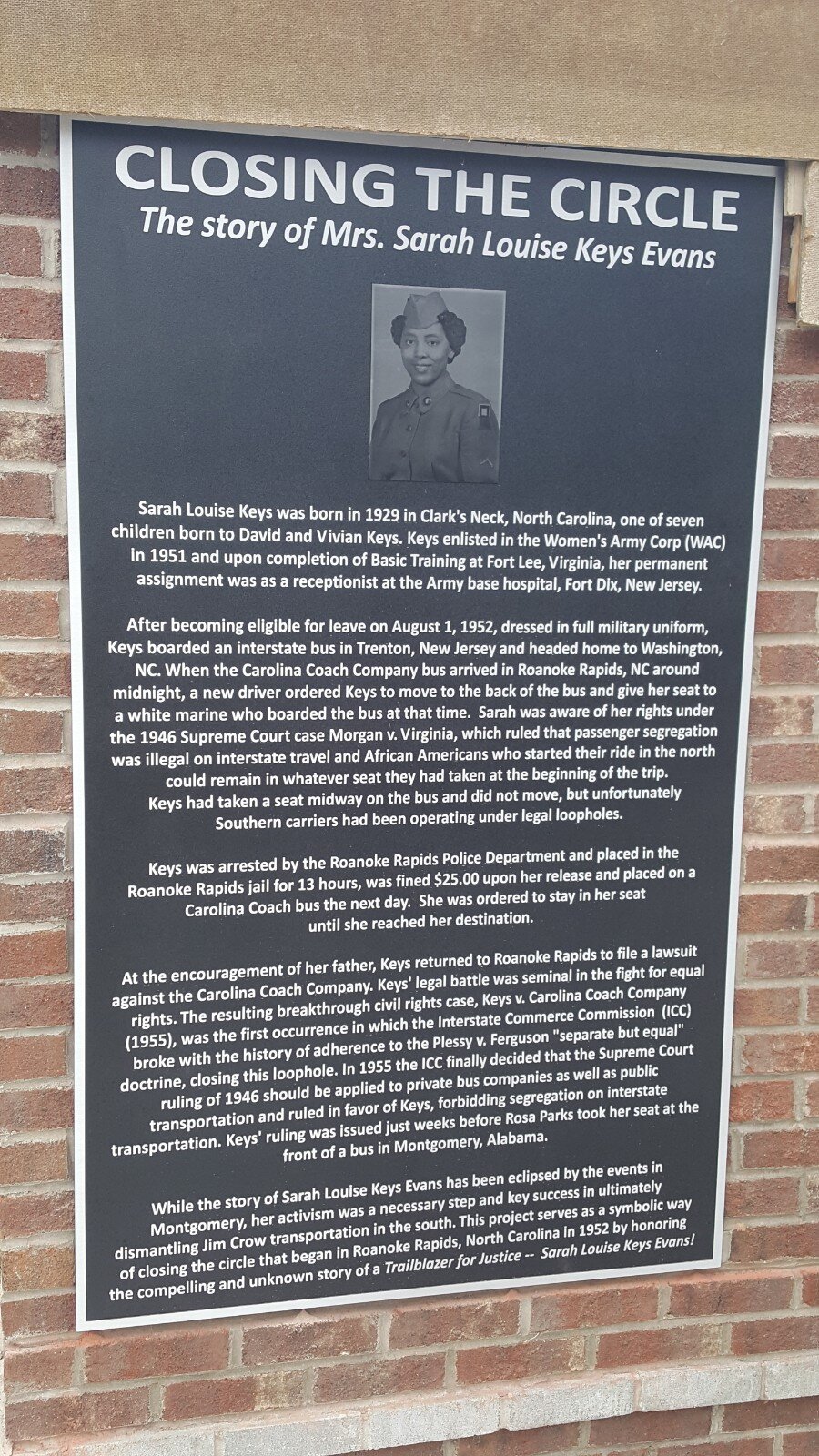Eastern Carolina Christian College and Seminary
Roanoke Rapids, NC
Sarah Keys (middle) in the Women’s Army Corps basic training. Thumbnail and photo courtesy of Mrs. Sarah Keys Evans
Eastern Carolina Christian College and Seminary (ECCCS), and additional community organizations, have partnered together to tell the story of Mrs. Sarah Keys Evans – a young, African American woman in the Women’s Army Corps, who refused to move to the back of the bus on August 2, 1952, was arrested, and whose legal battle was seminal in the fight for equal rights. This event took place at the bus terminal on Roanoke Avenue in Roanoke Rapids, NC, while she was traveling dressed in her official Women’s Army Corps uniform, from New Jersey to her hometown of Washington, NC. On September 1, 1953, Sarah Keys became the first Black petitioner to bring a complaint before the US Interstate Commerce Commission (ICC) on a Jim Crow bus matter, two months before Thurgood Marshall made the second round of oral arguments in the landmark Brown v. Board of Education case. The resulting breakthrough civil rights case, Keys v. Carolina Coach Company (1955) was the first occurrence in which the ICC broke with its history of adherence to the Plessy v. Ferguson “separate but equal” doctrine. This ruling was publicly announced six days before Rosa Parks’ historic defiance of Jim Crow laws on a Montgomery, Alabama, bus and the start of the Montgomery Bus Boycotts of 1955. While the story of Sarah Keys has generally been eclipsed by the events in Montgomery, her activism was a necessary step and key success in ultimately dismantling Jim Crow transportation laws in the South in 1961. Working in collaboration with local Enfield, NC artist Napolean Hill, the artwork plaza, themed “Closing the Circle,” tells this important, yet under told story through eight chronological mural panels and two bronze plaques, mounted on two semi-circular brick walls. This project is located in Dr. Martin Luther King Jr. Park, an active community space in Roanoke Rapids.
Eastern Carolina Christian College and Seminary, in partnership with filmmaker Les Atkins, produced Trailblazer - Sarah Keys Evans Story
Eastern Carolina Christian College and Seminary, along with additional community stakeholders, have gathered together to form The SKE Project Committee to share this important story. Since 2018 they have worked in a collaborative community-engaged process that is central to the Inclusive Public Art Initiative. The slideshow below follows their journey, from their desire to share this vital but under told story, to research, education, design and engaging the wider community in the creation of a public artwork that lifts up this North Carolina trailblazer. Visit their project website at http://sarahkevansproject.com/
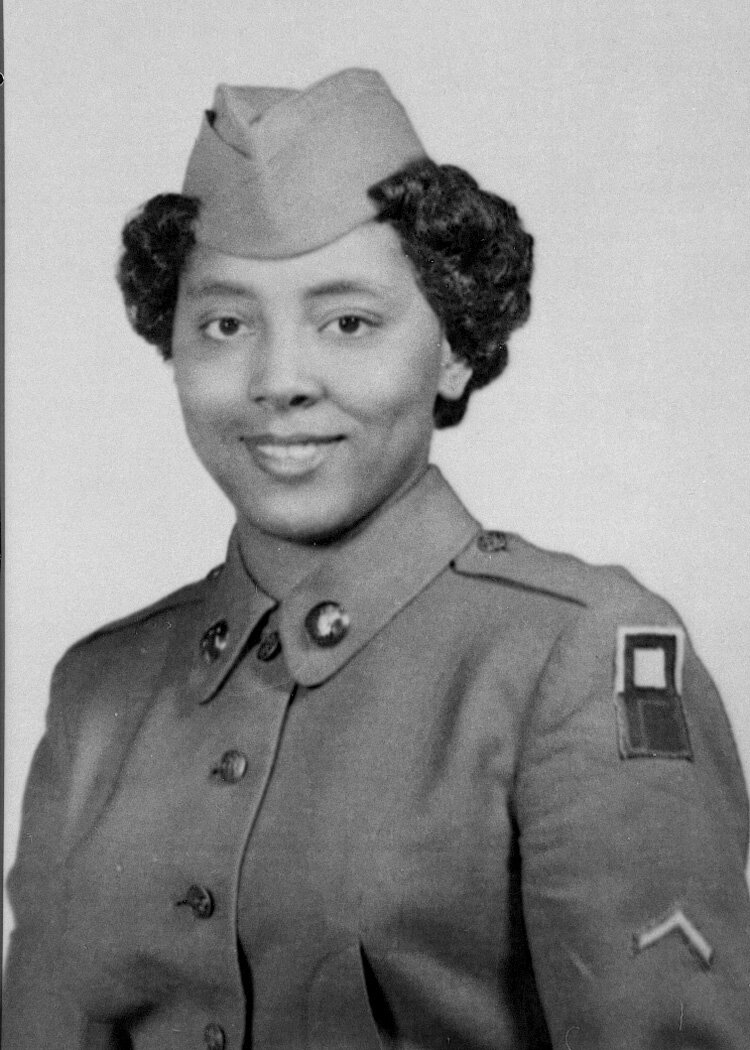
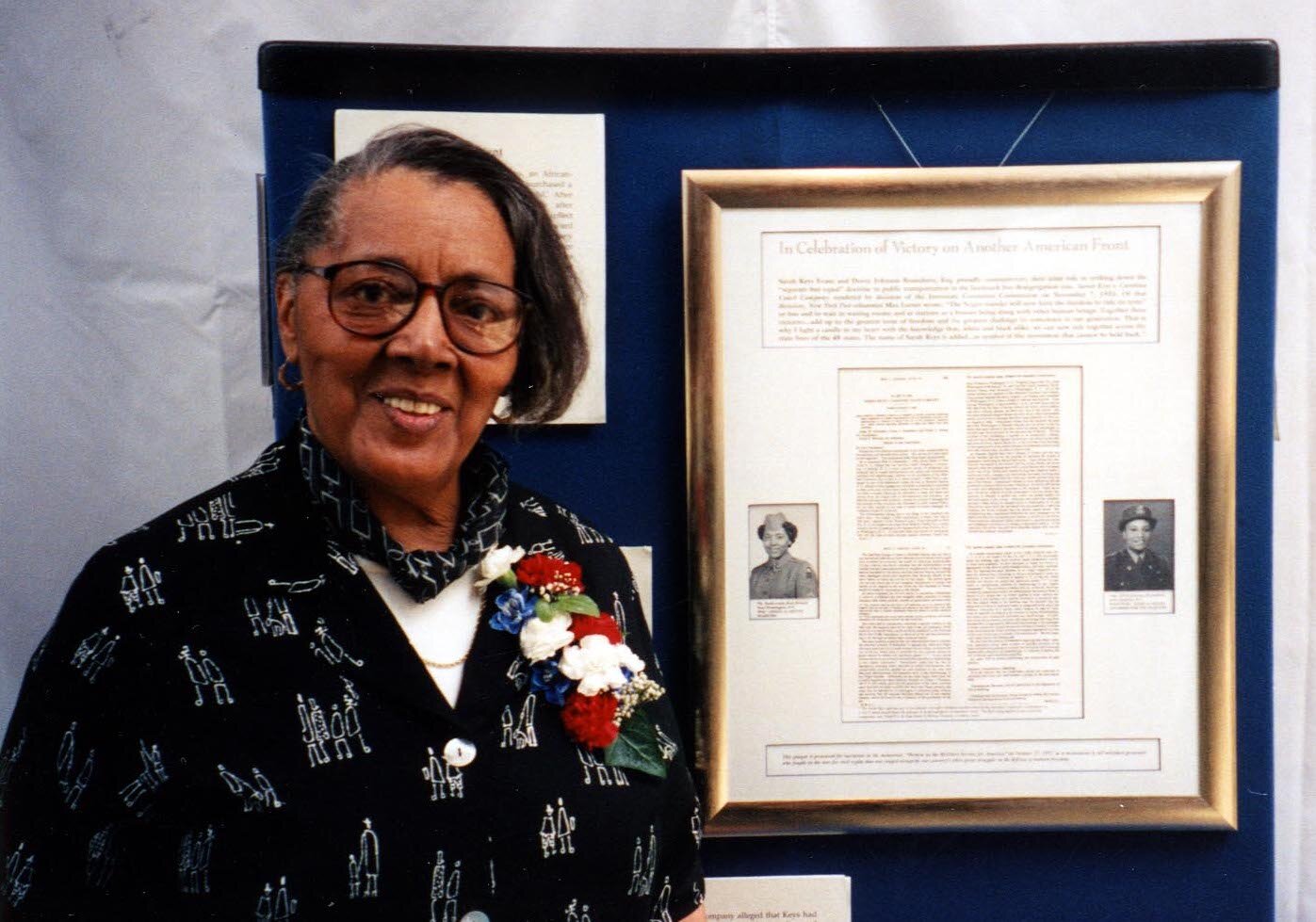
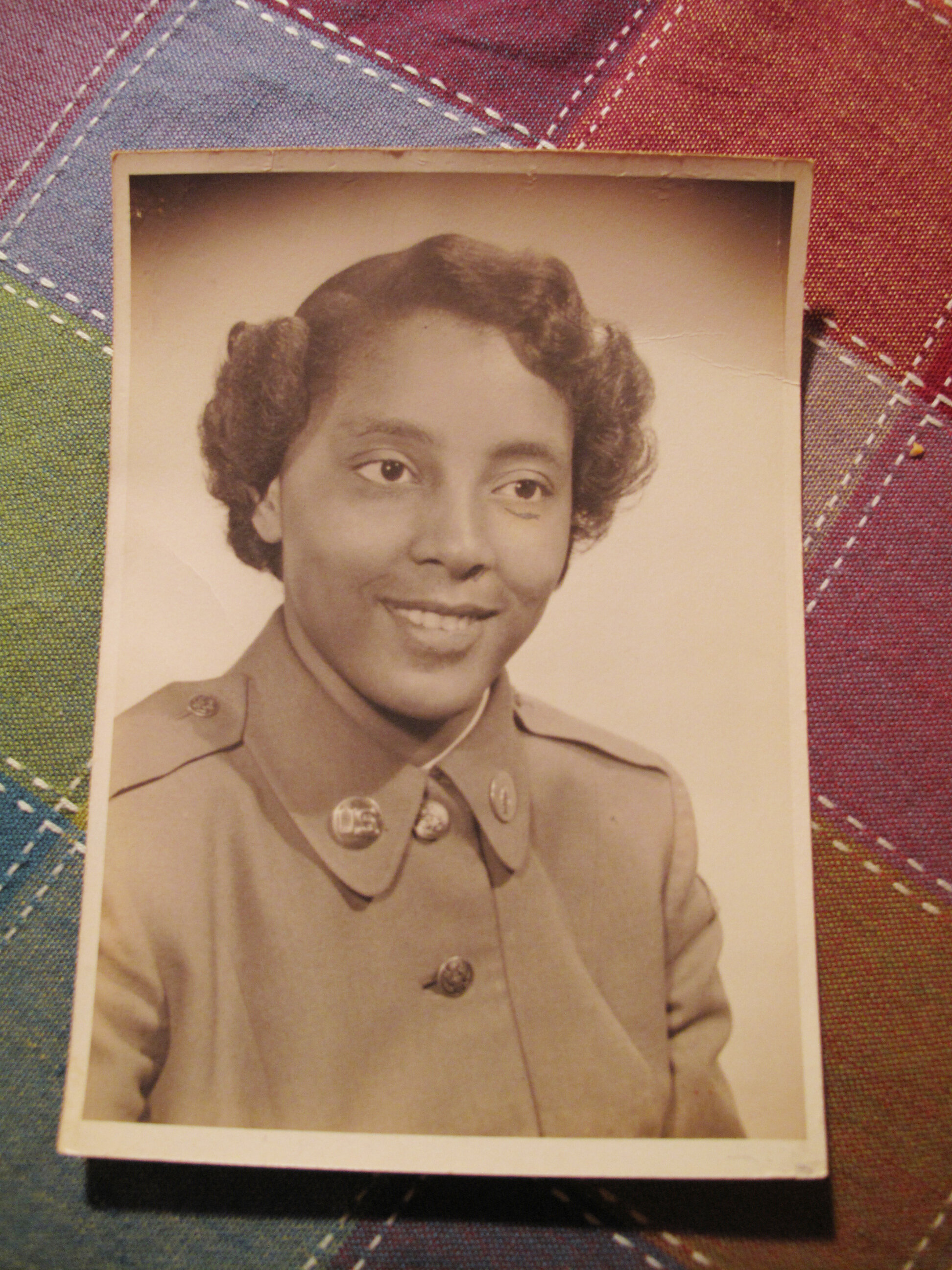
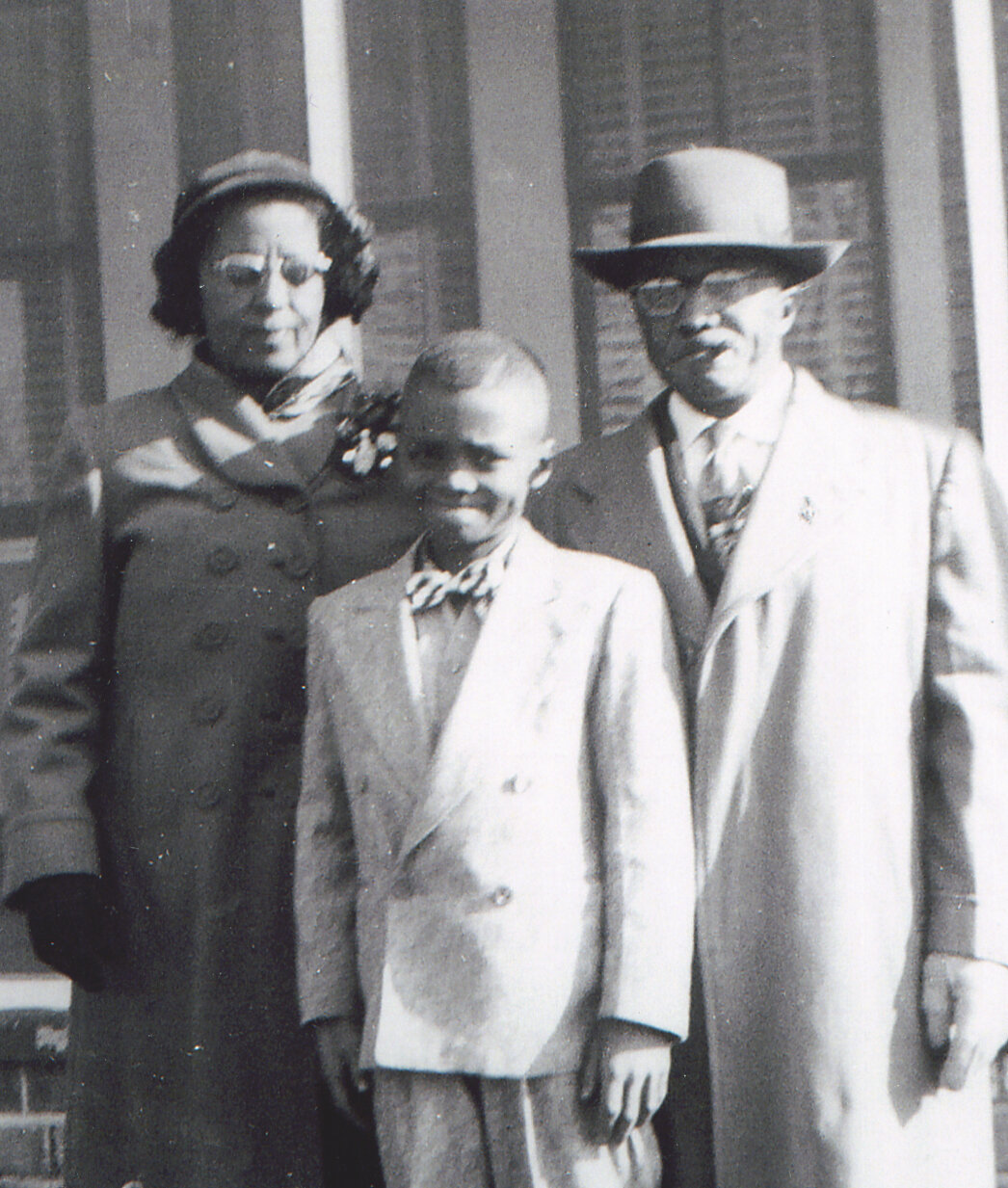
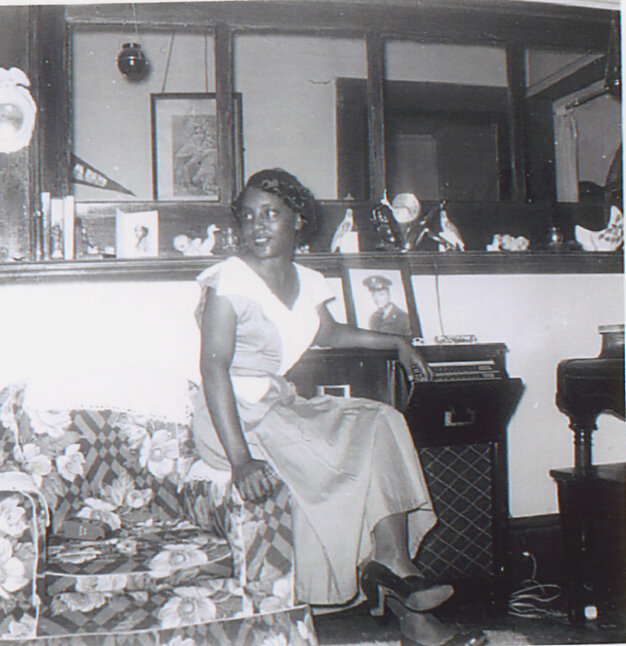
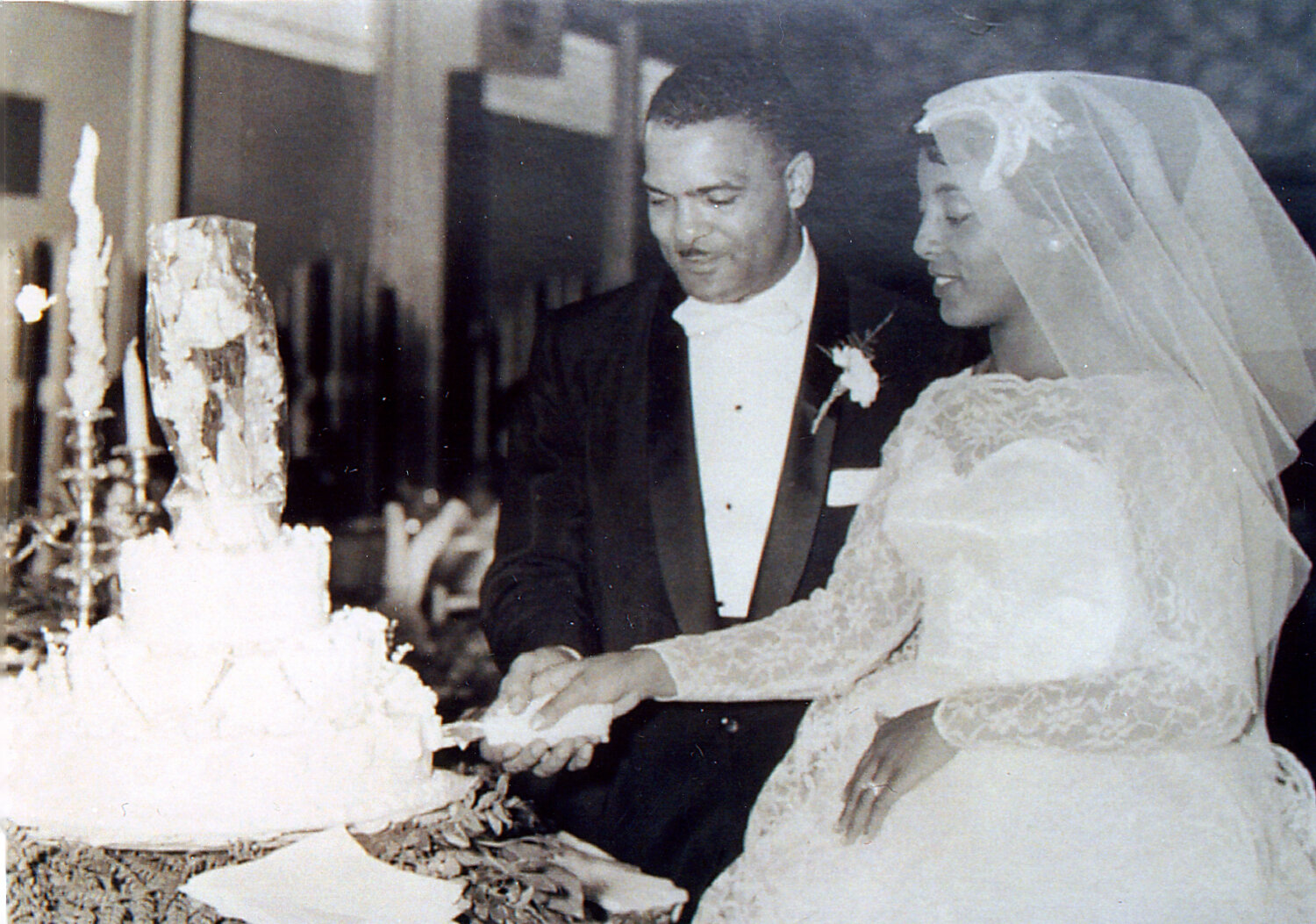
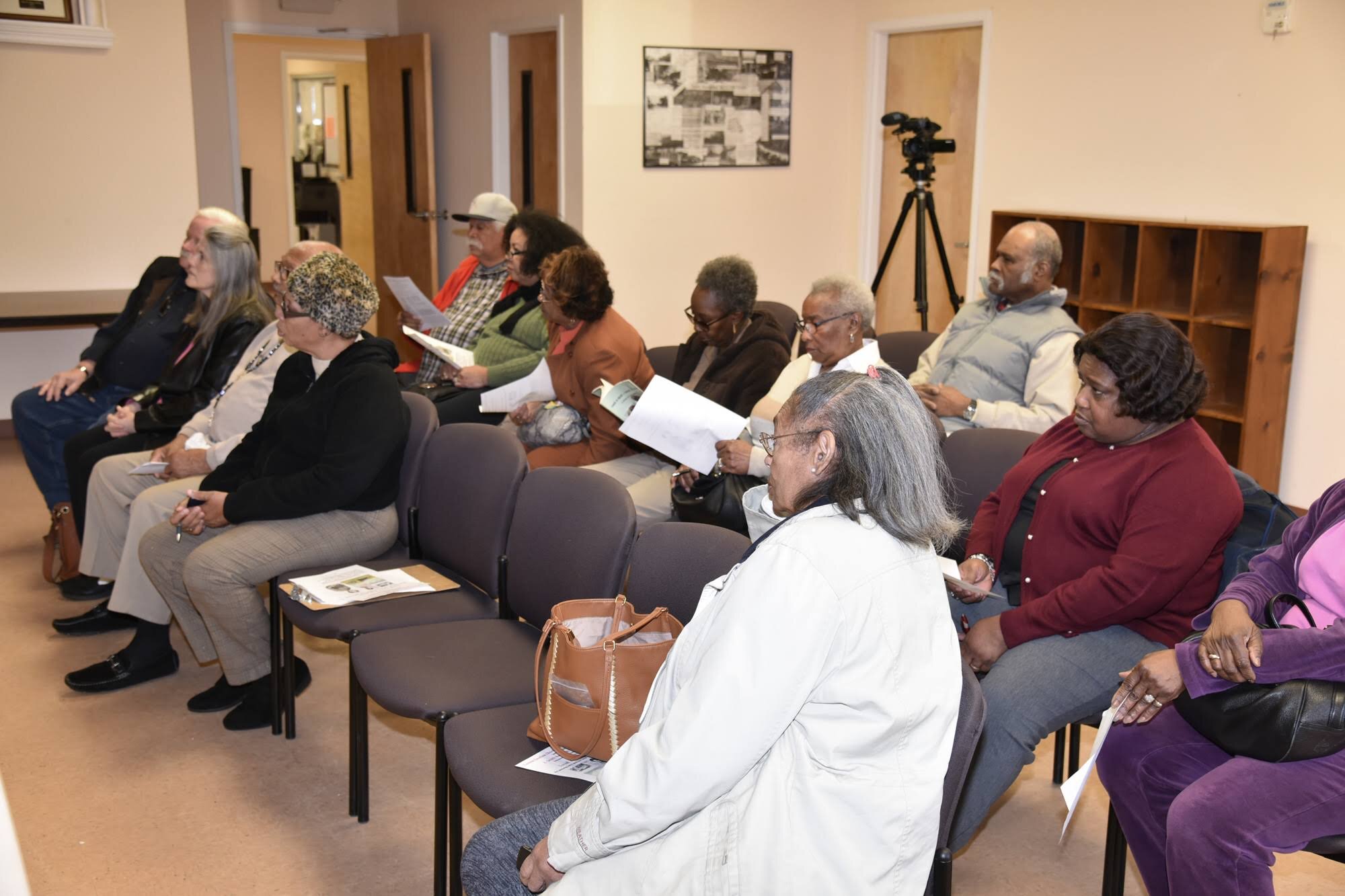
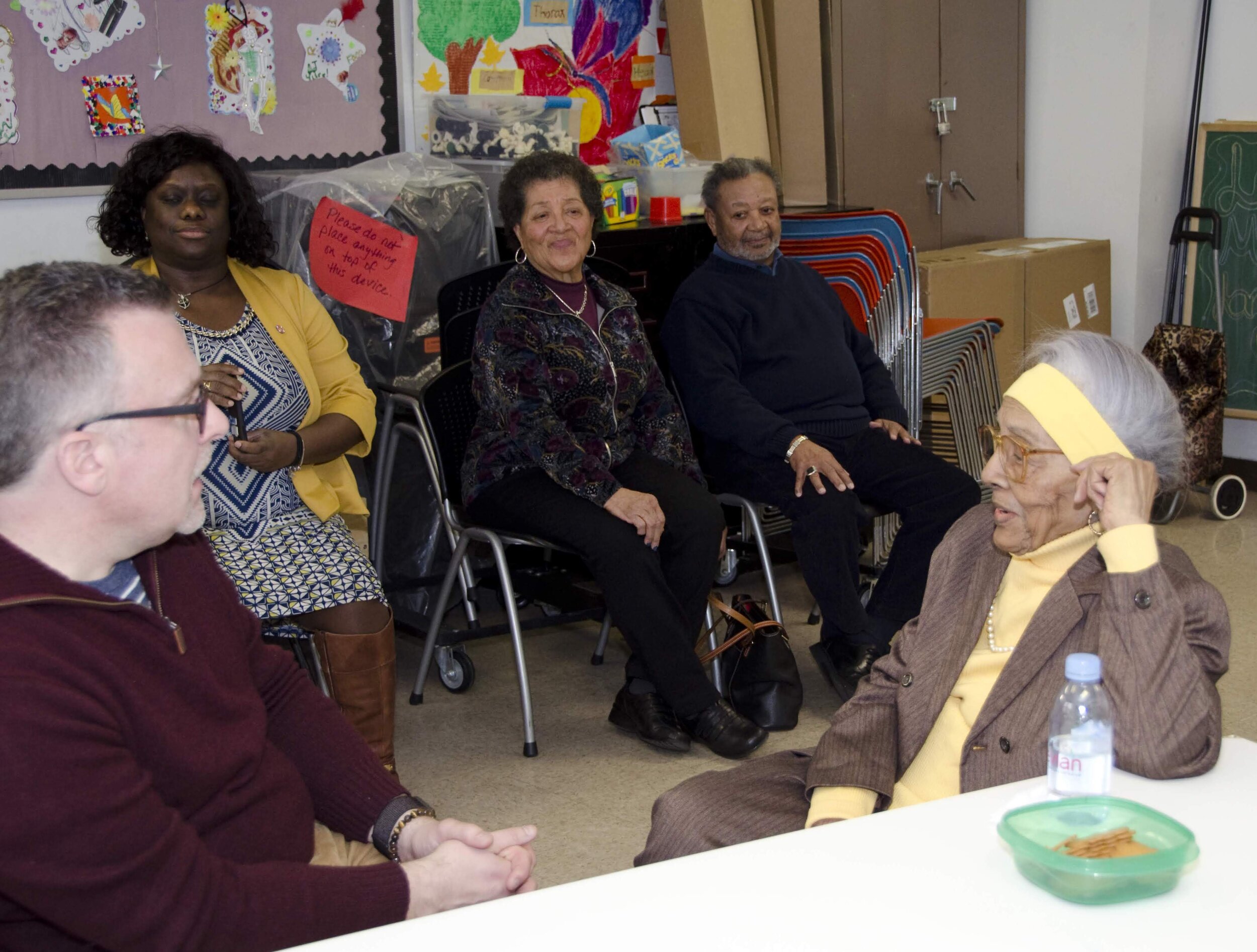
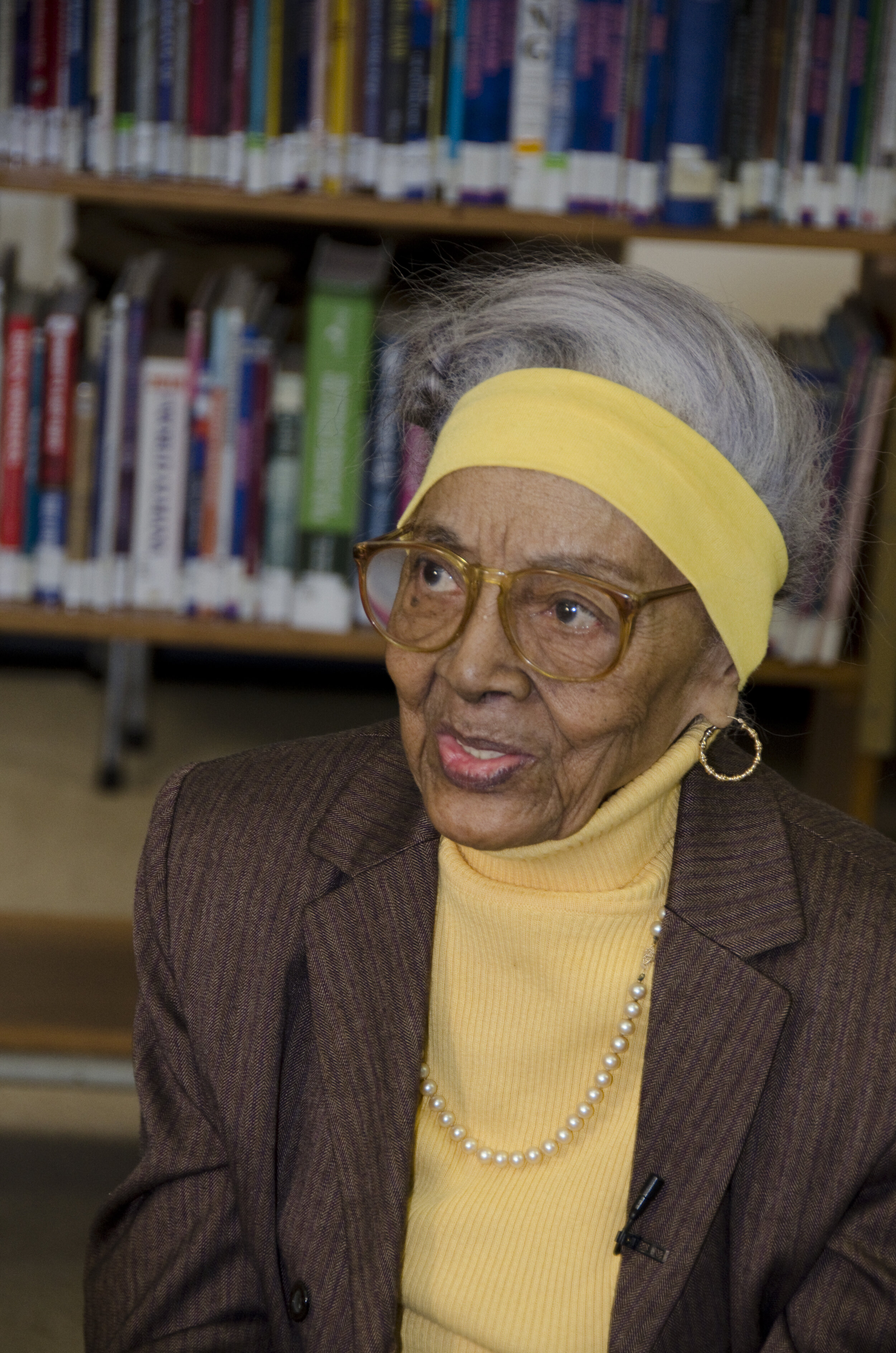
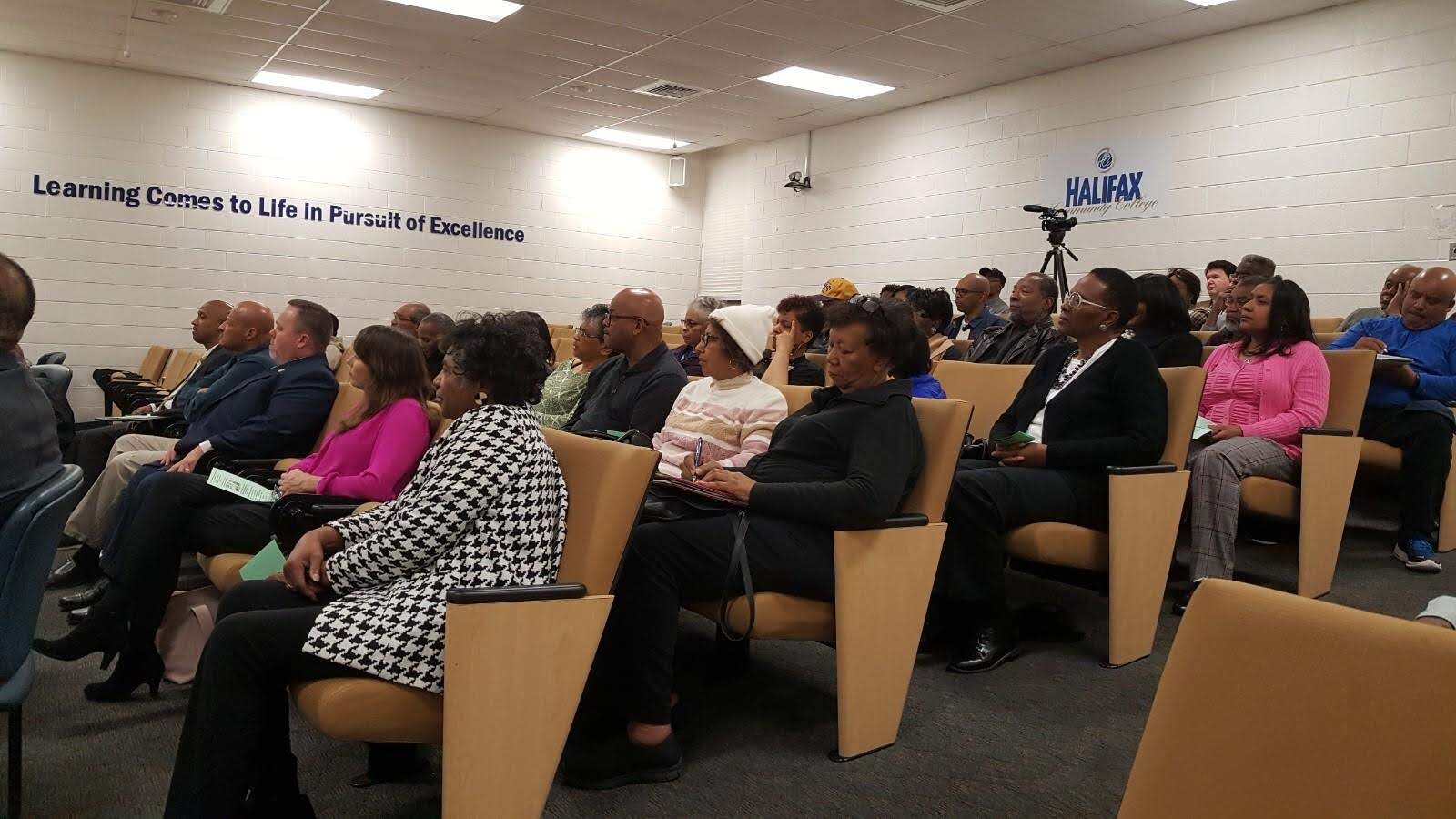
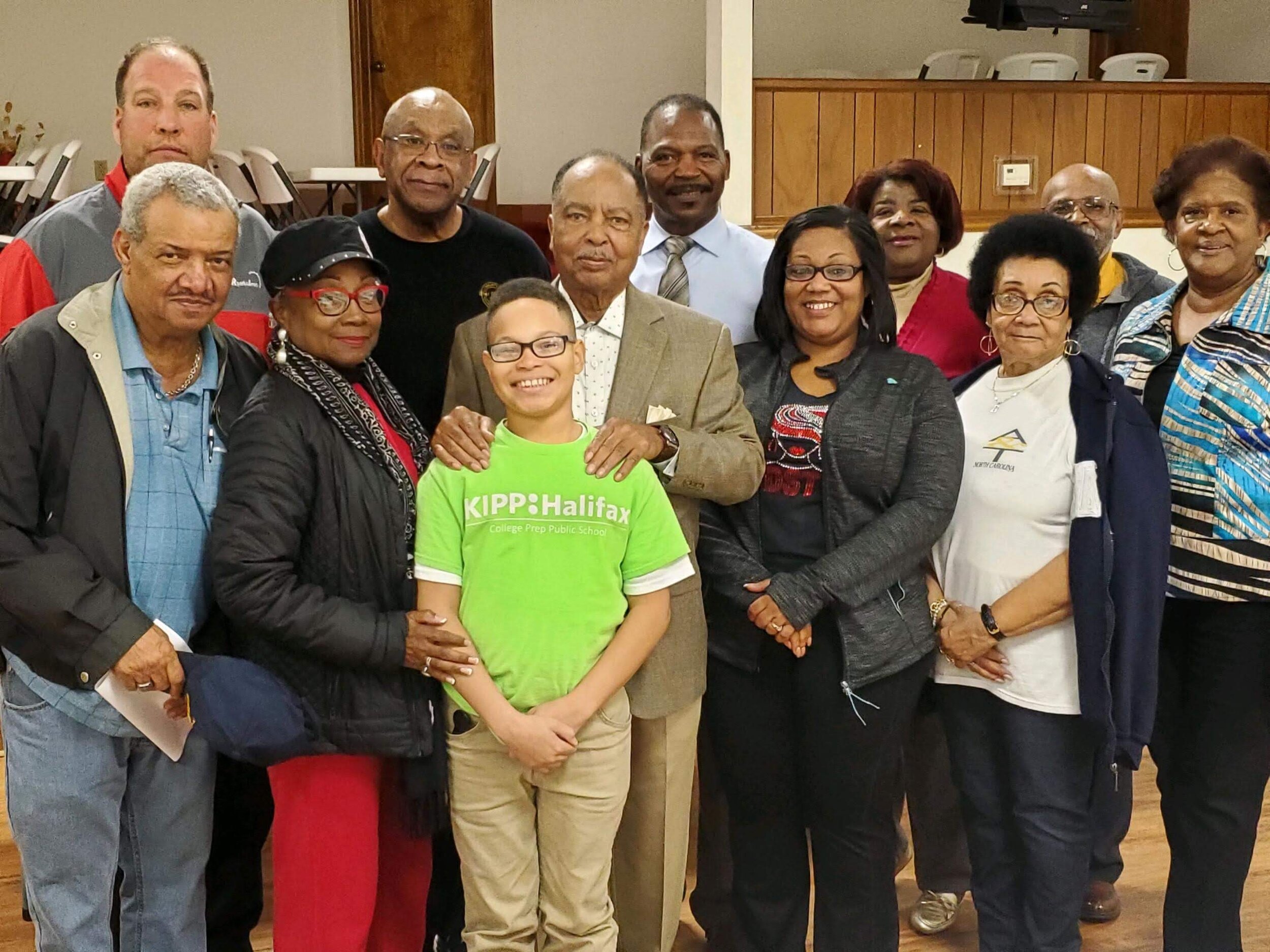
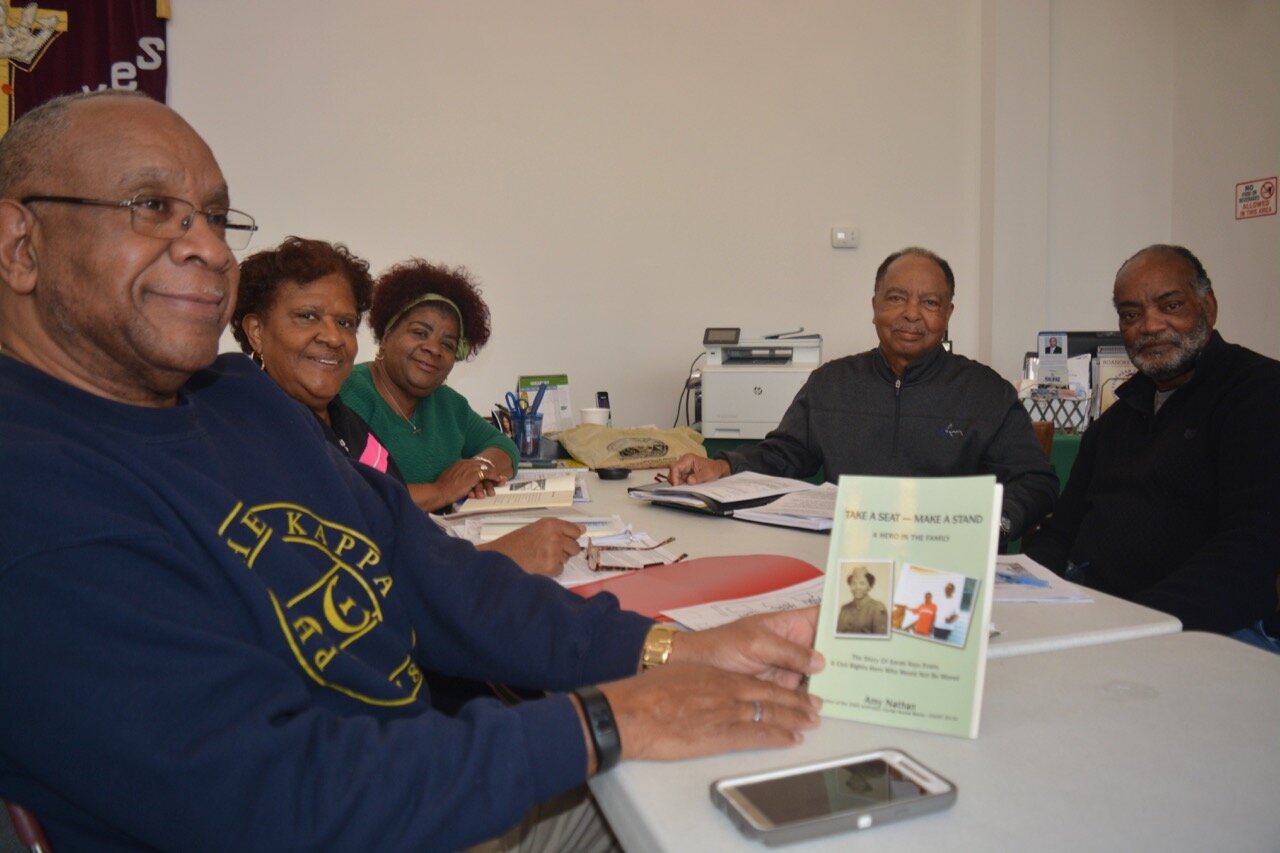
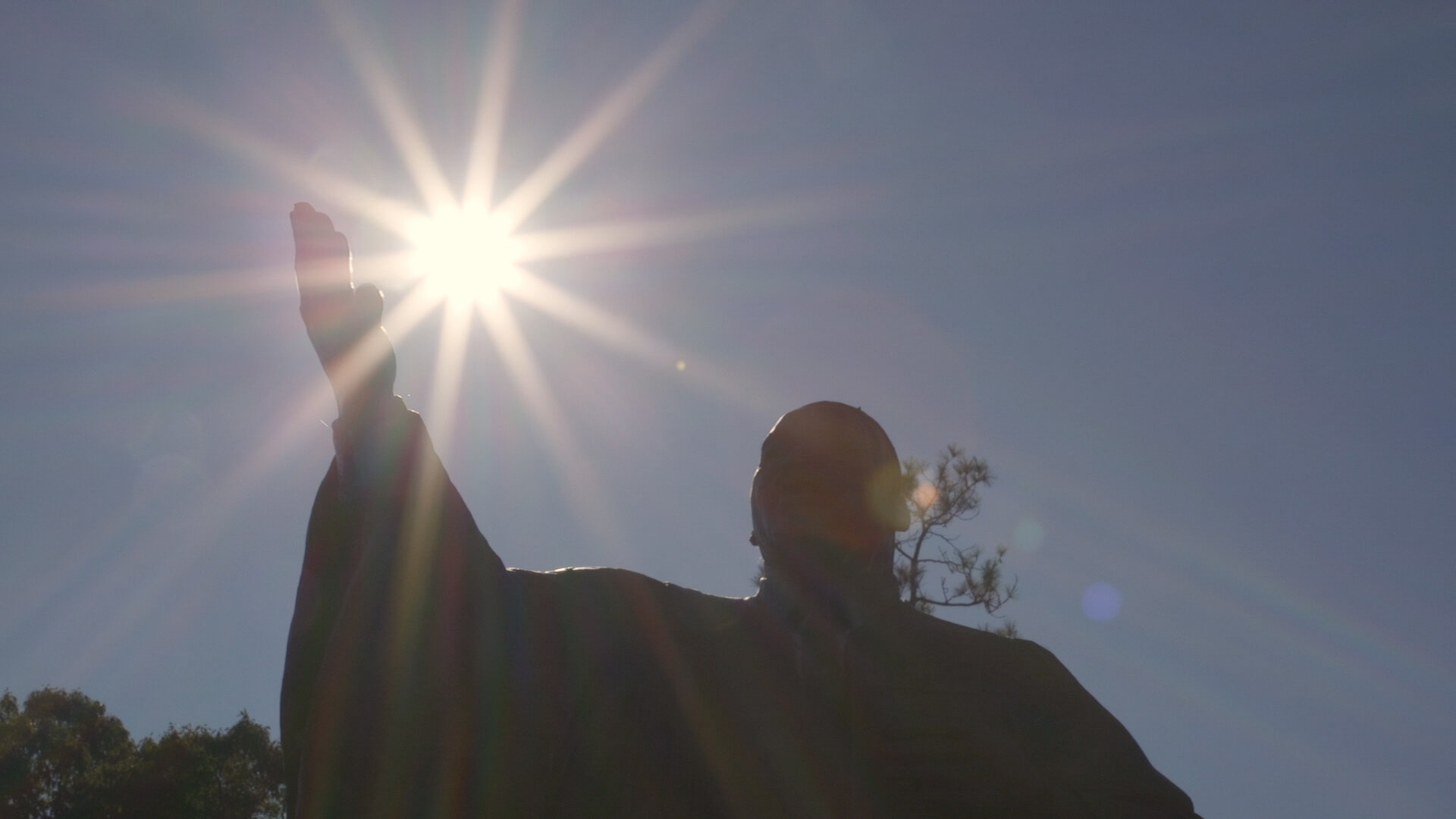
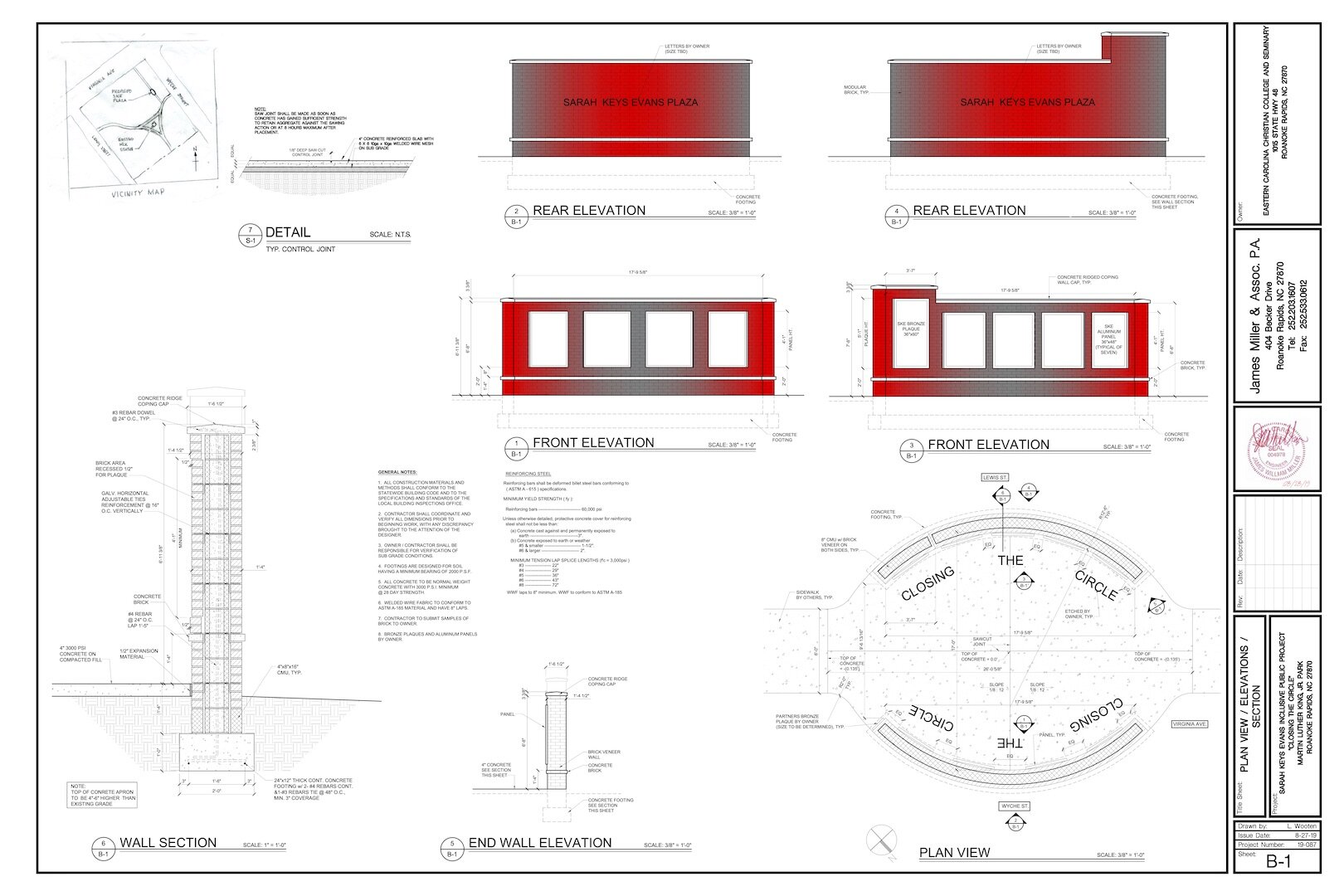
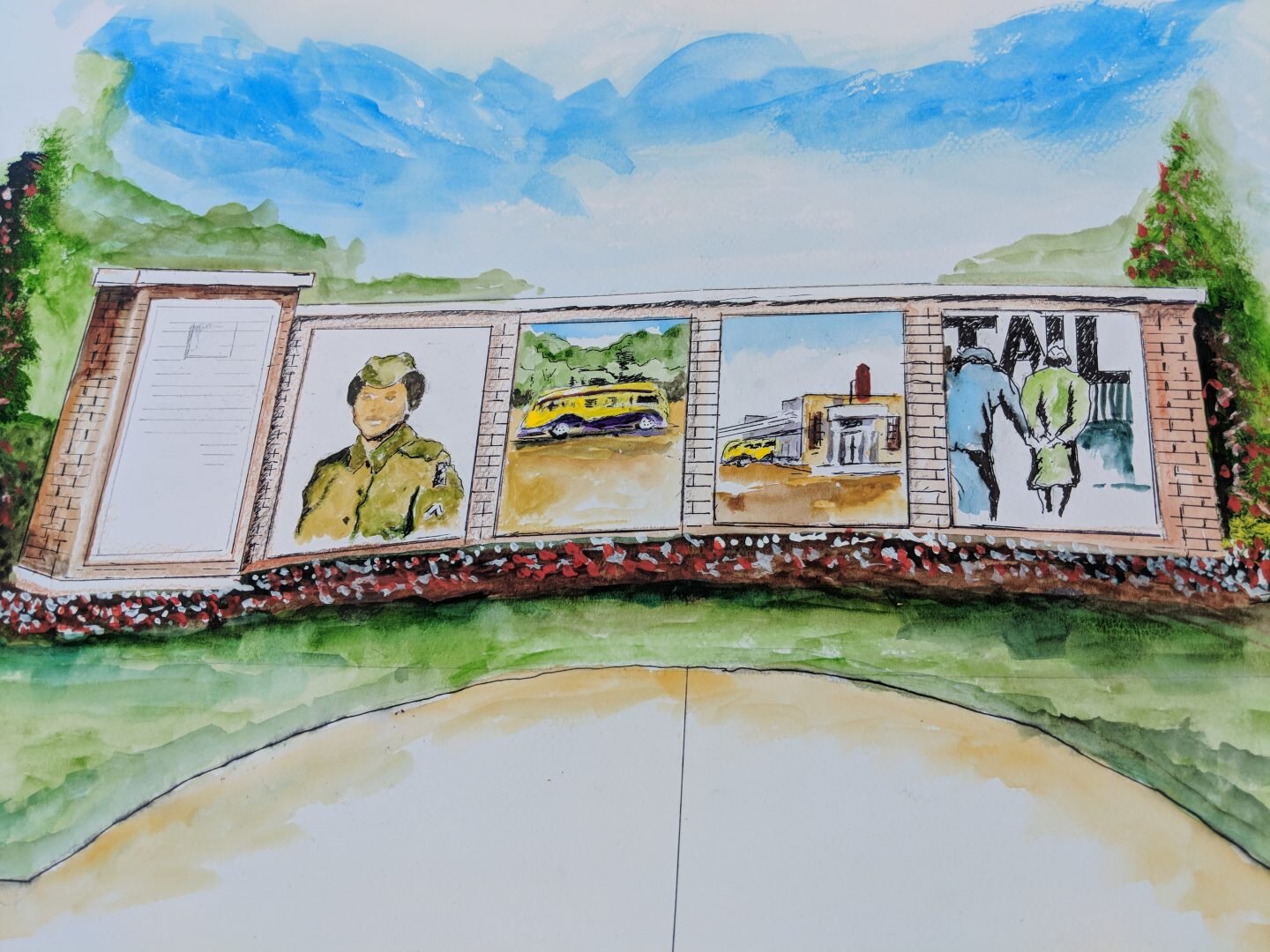
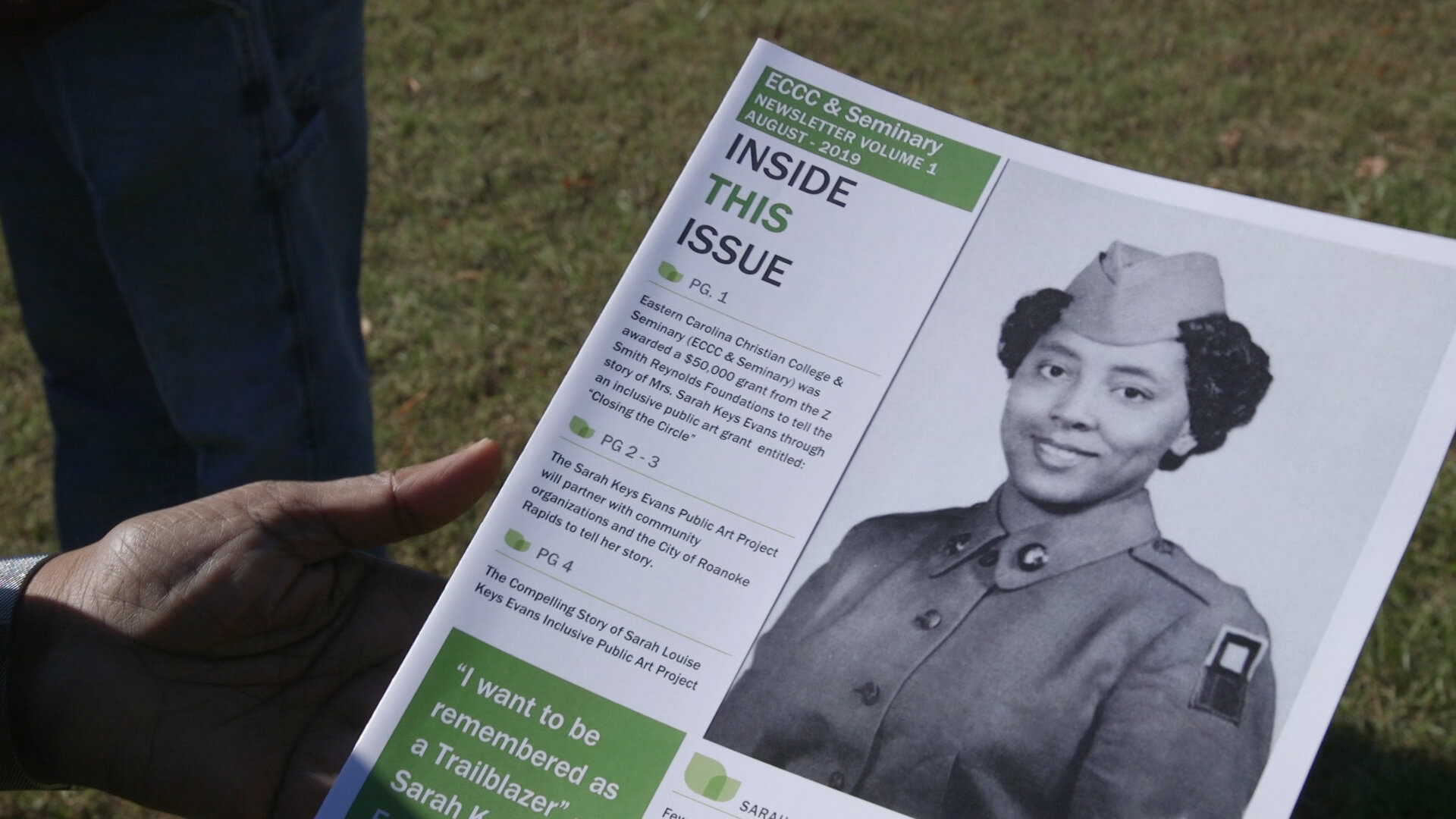
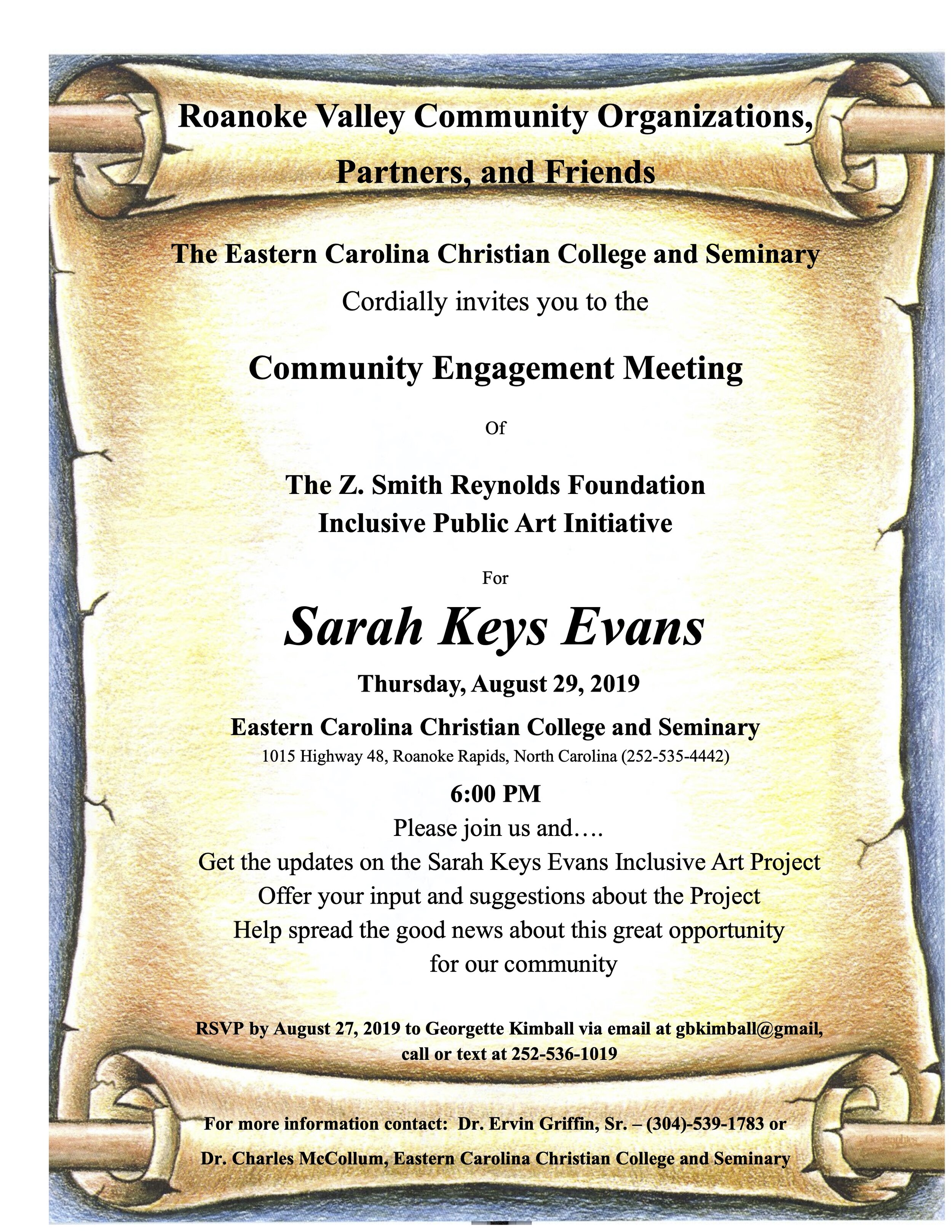
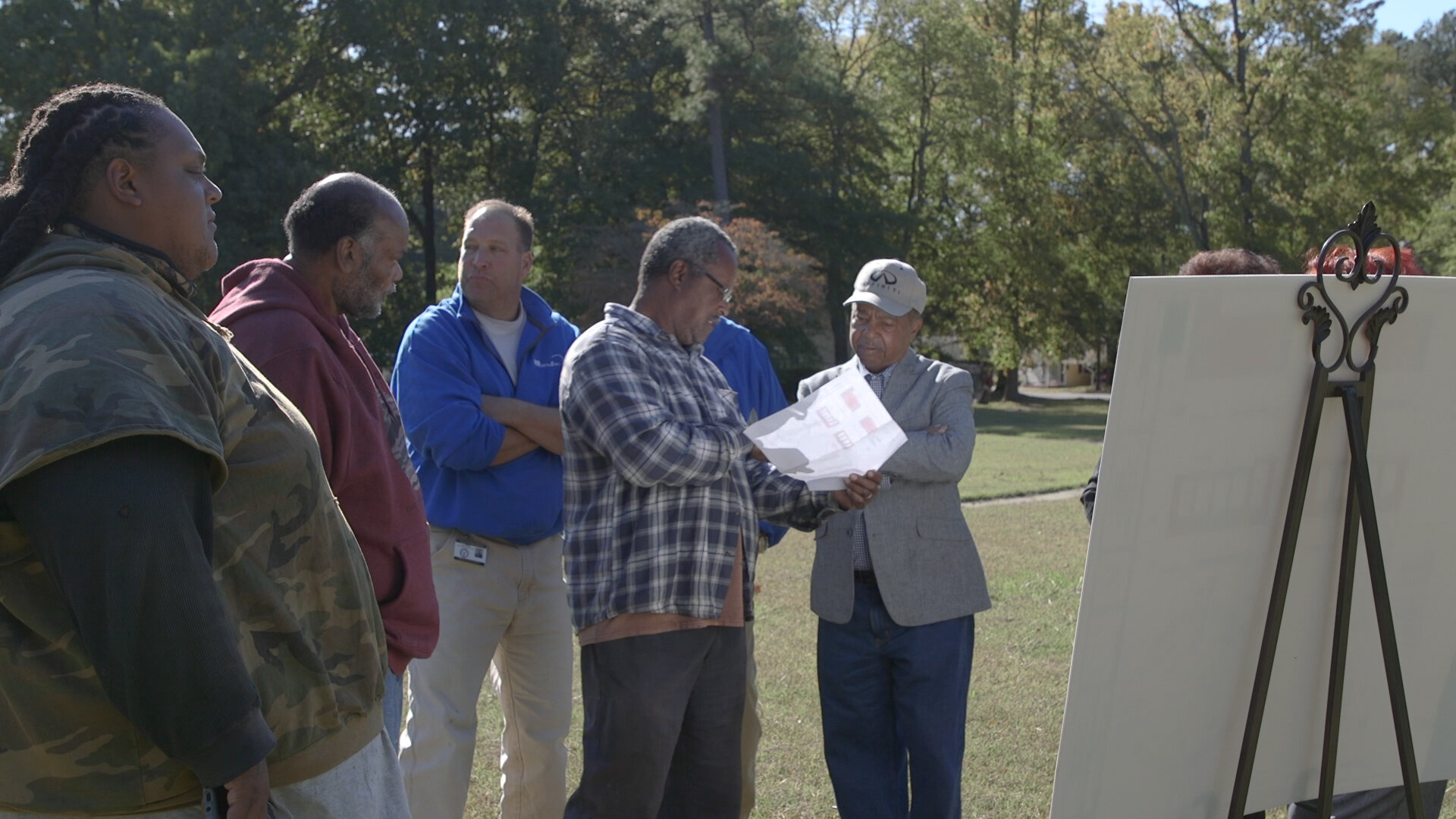
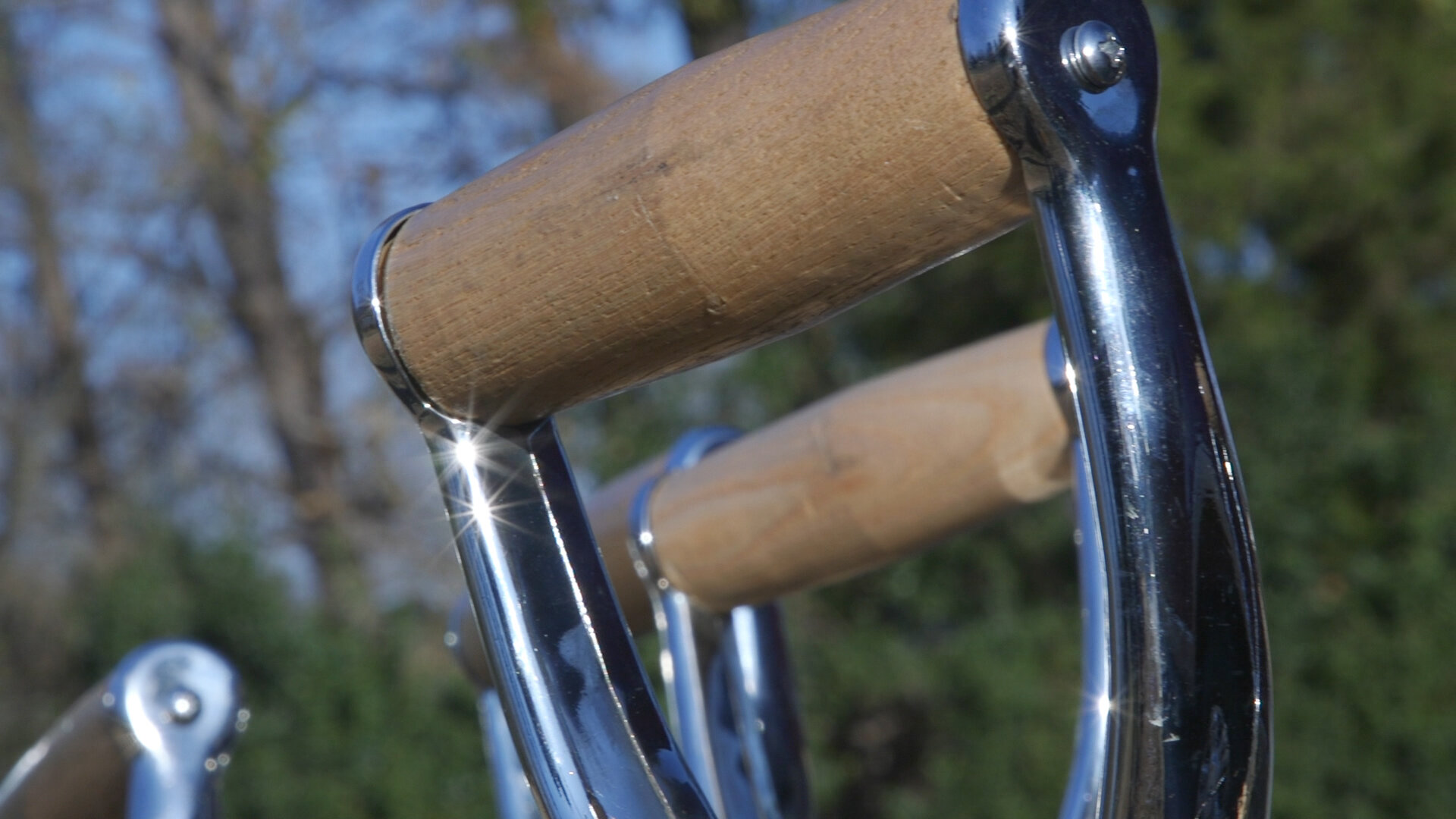
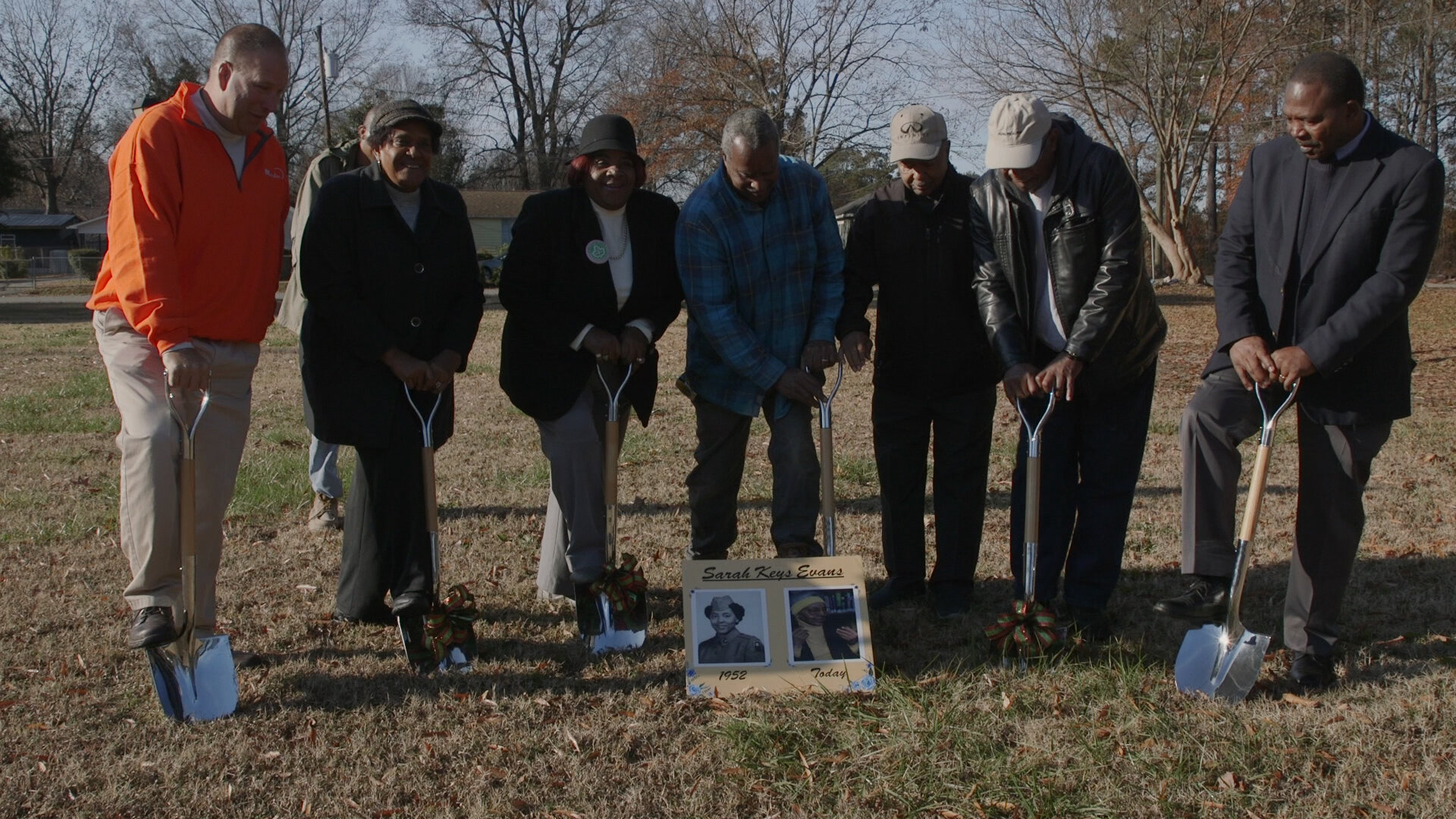
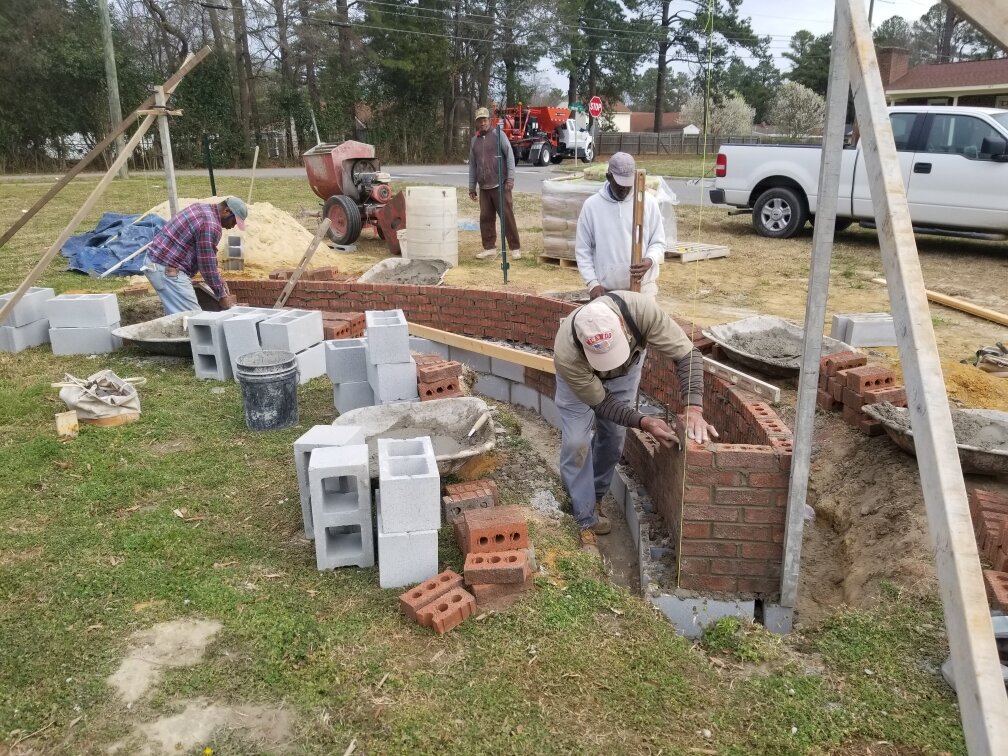
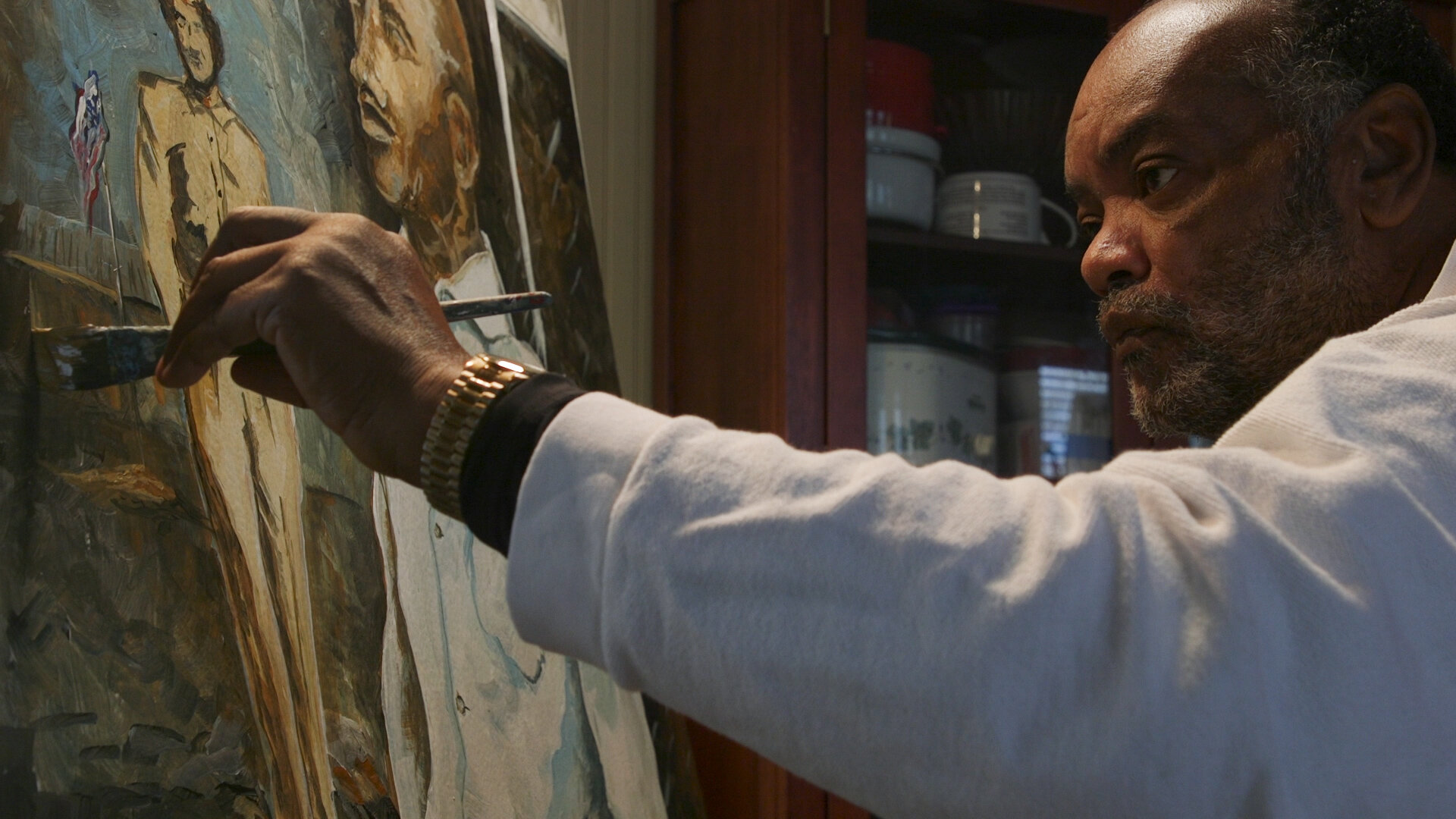
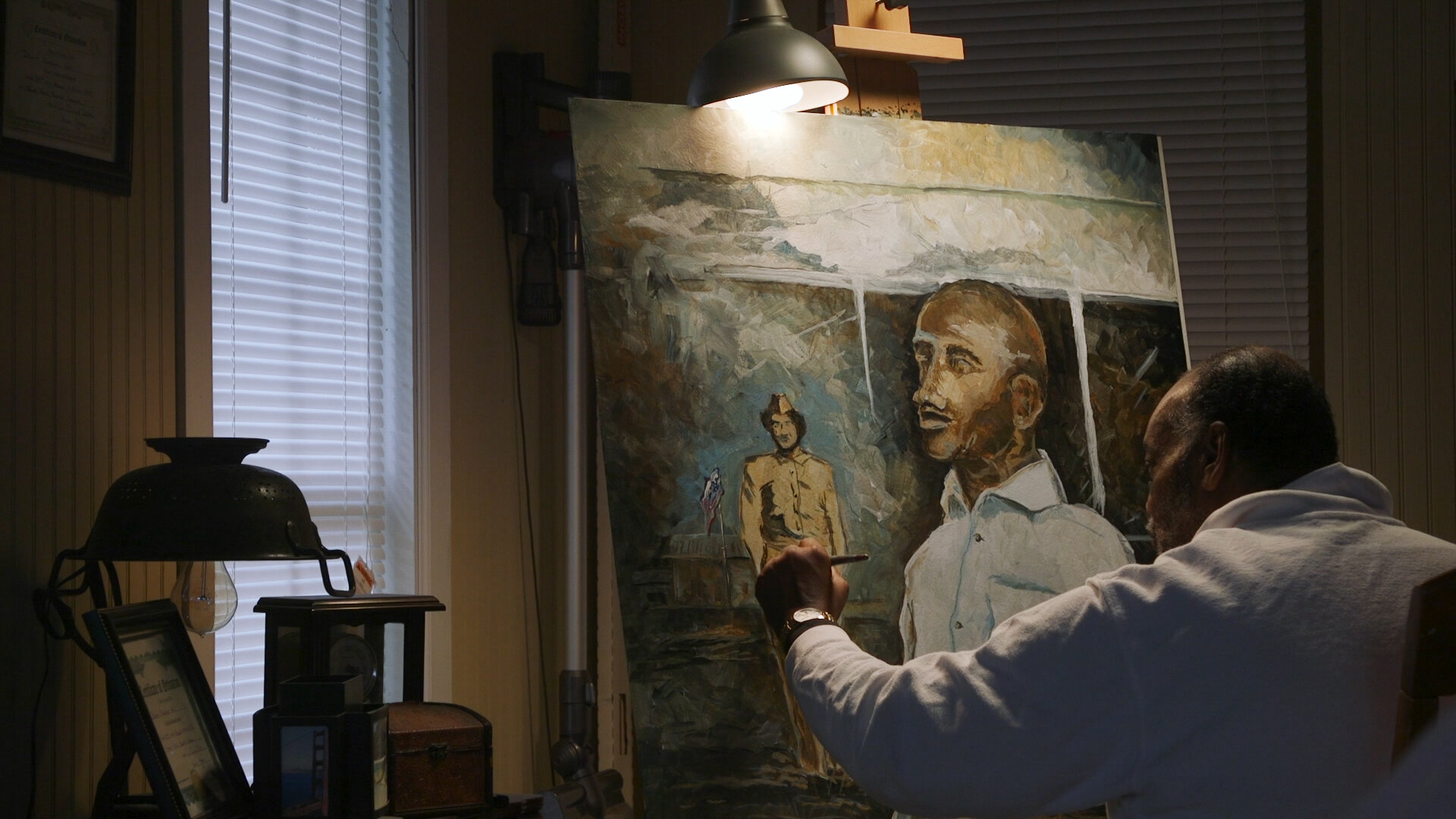
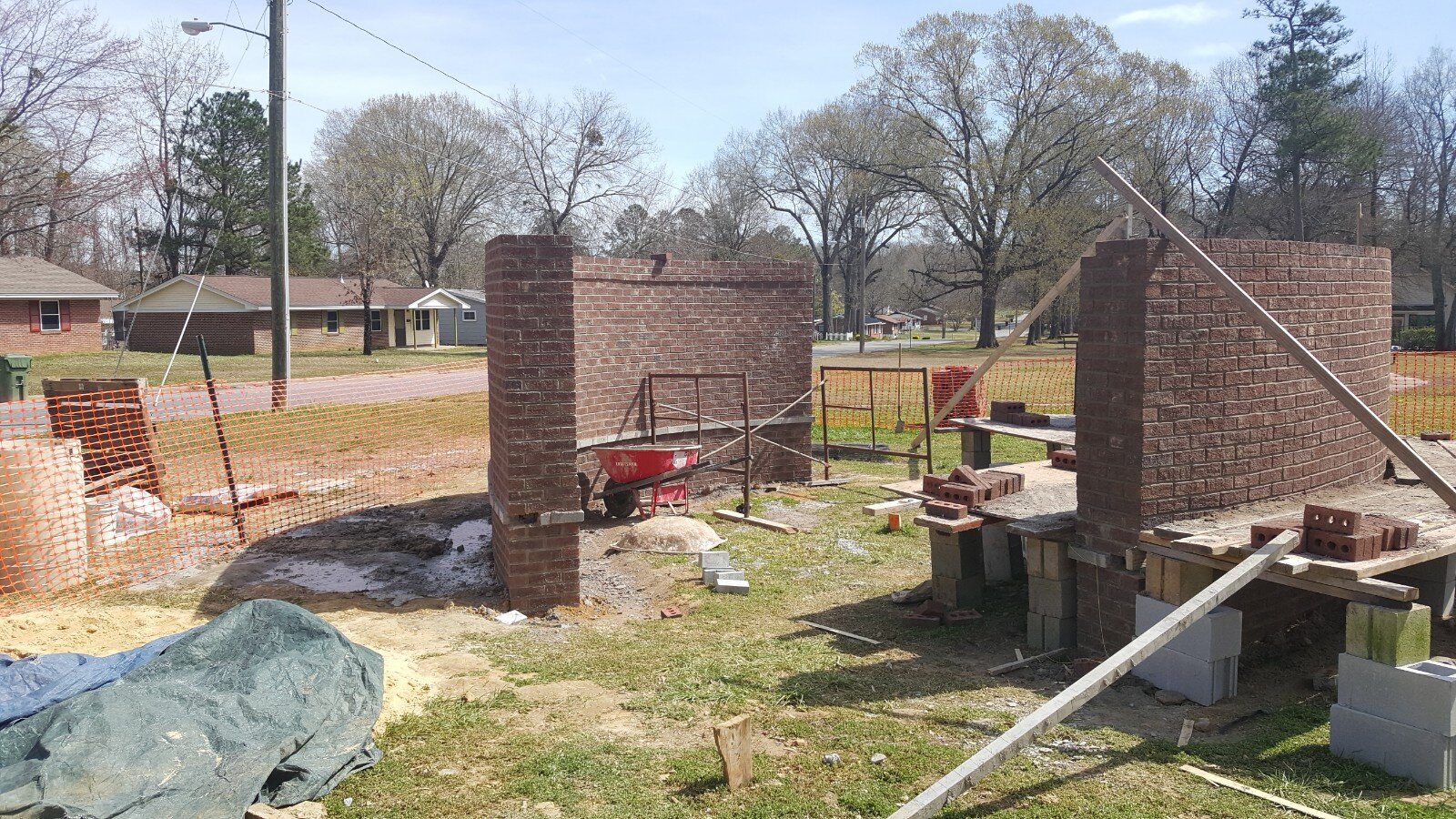
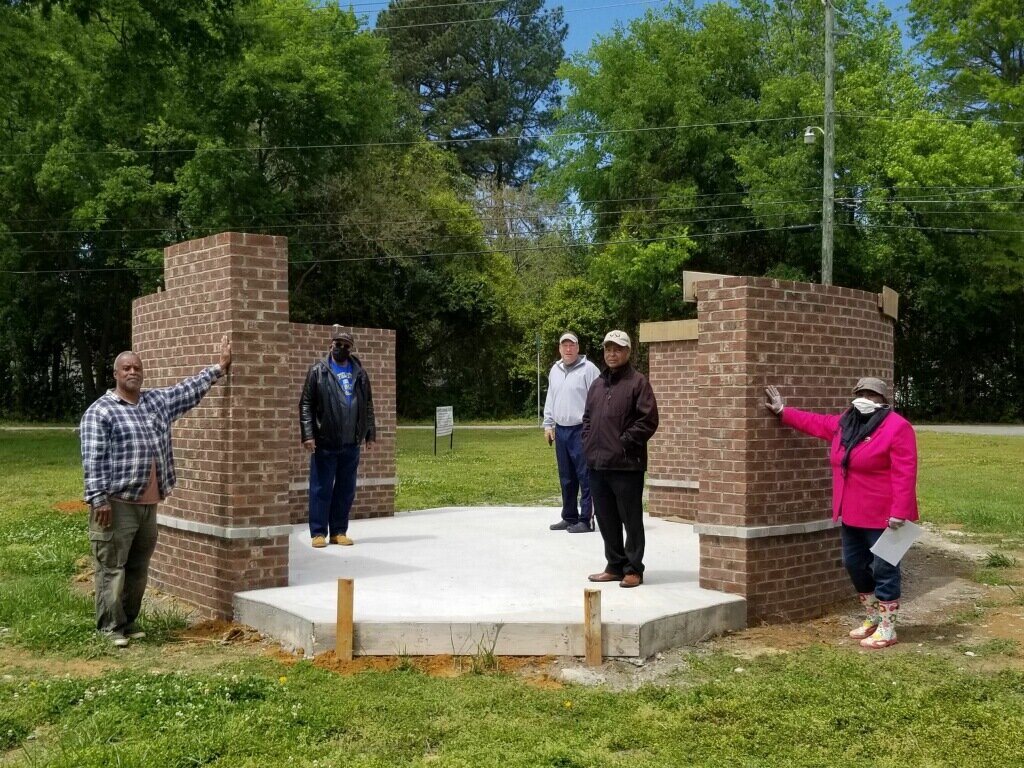
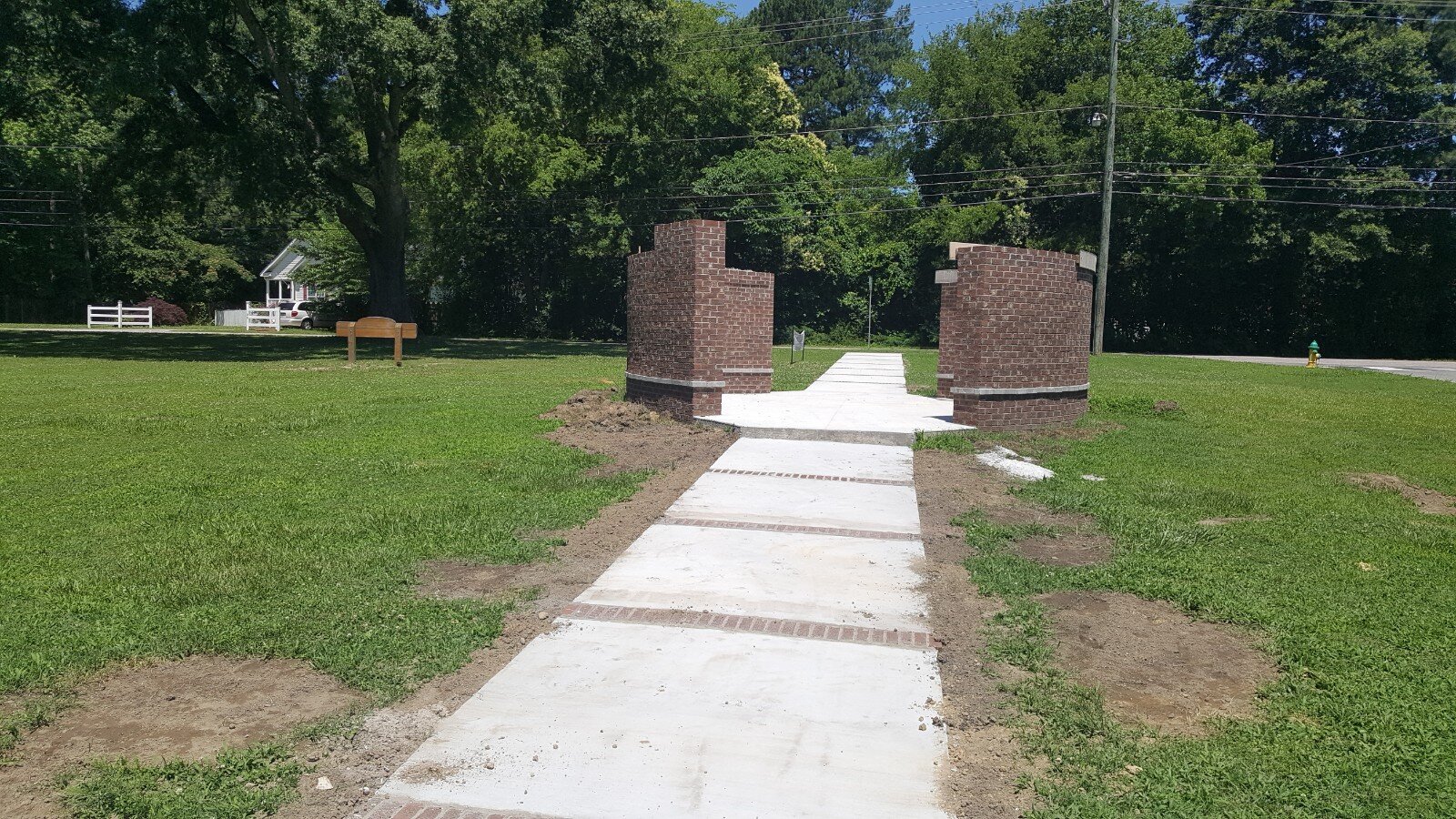
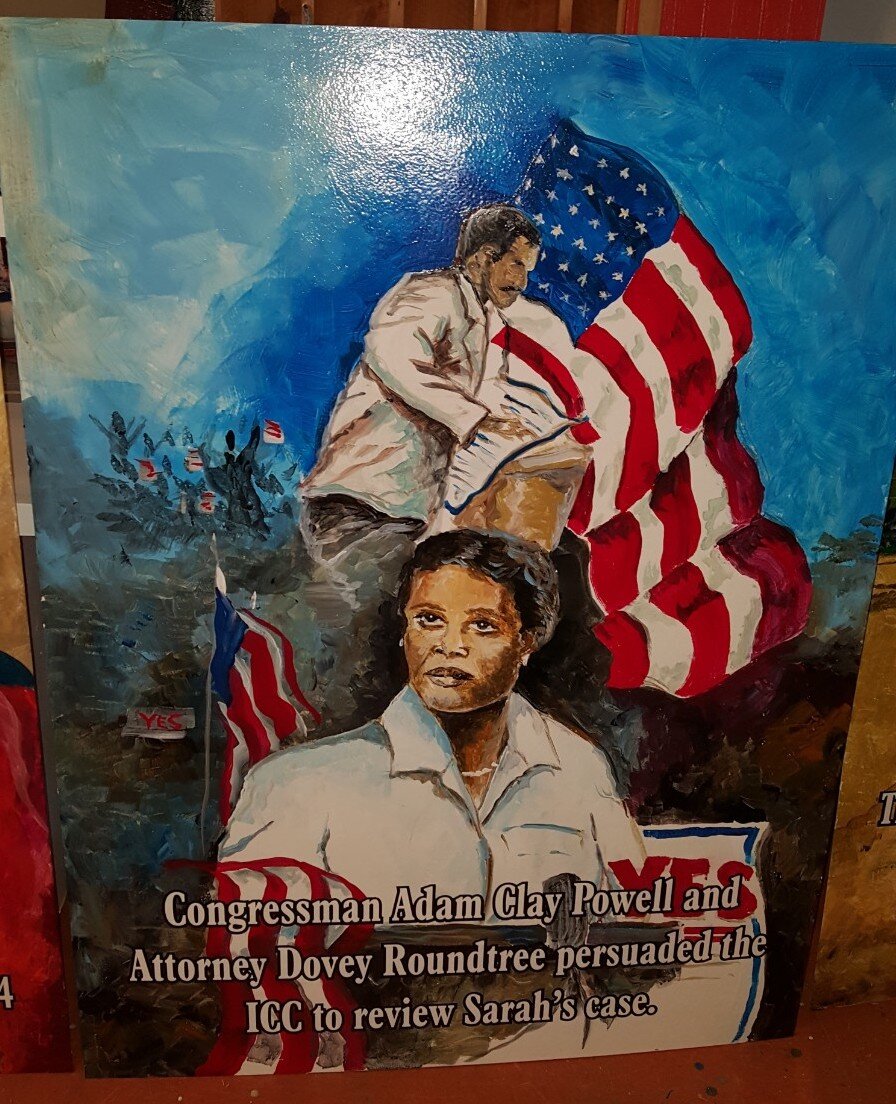
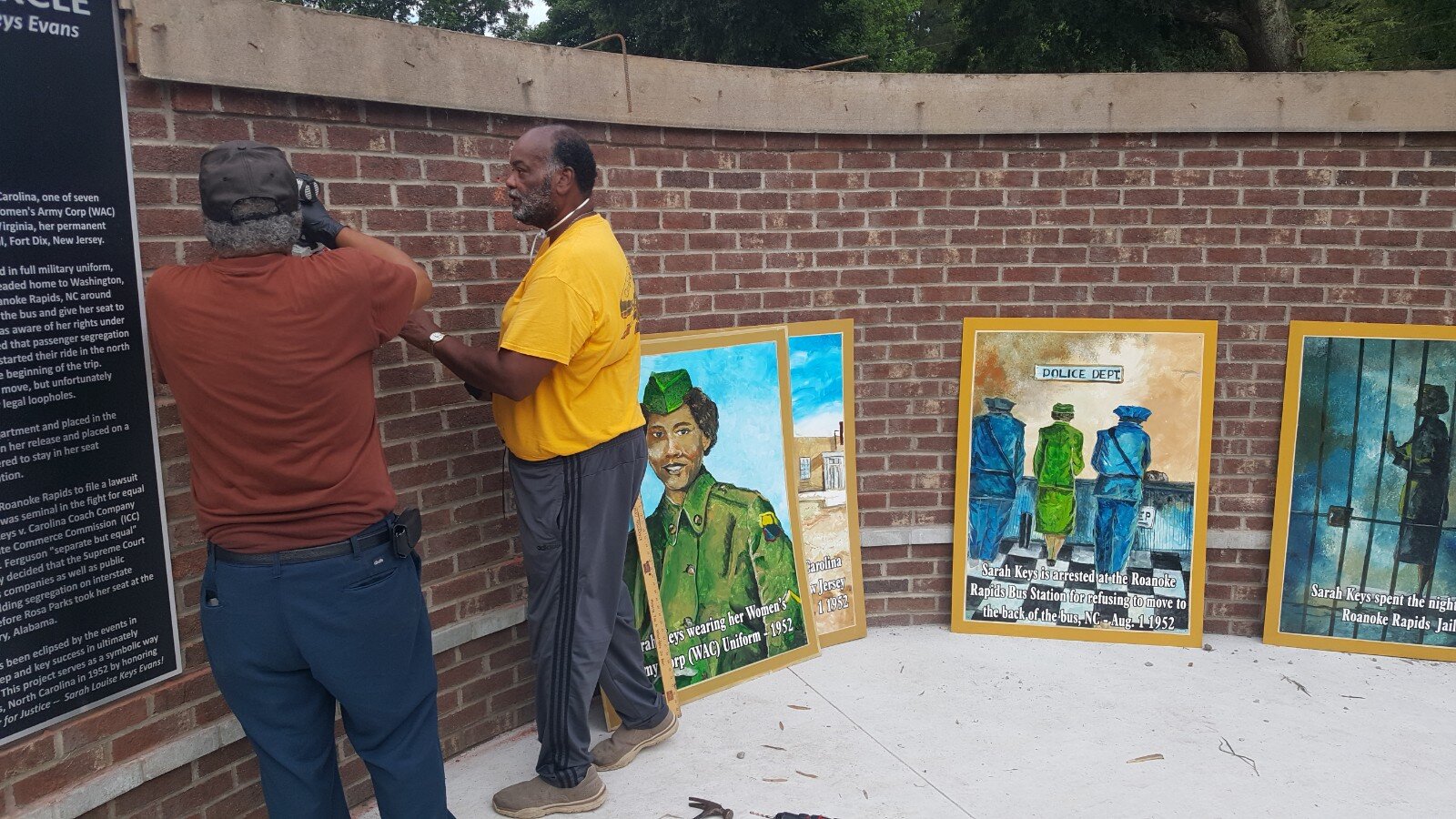
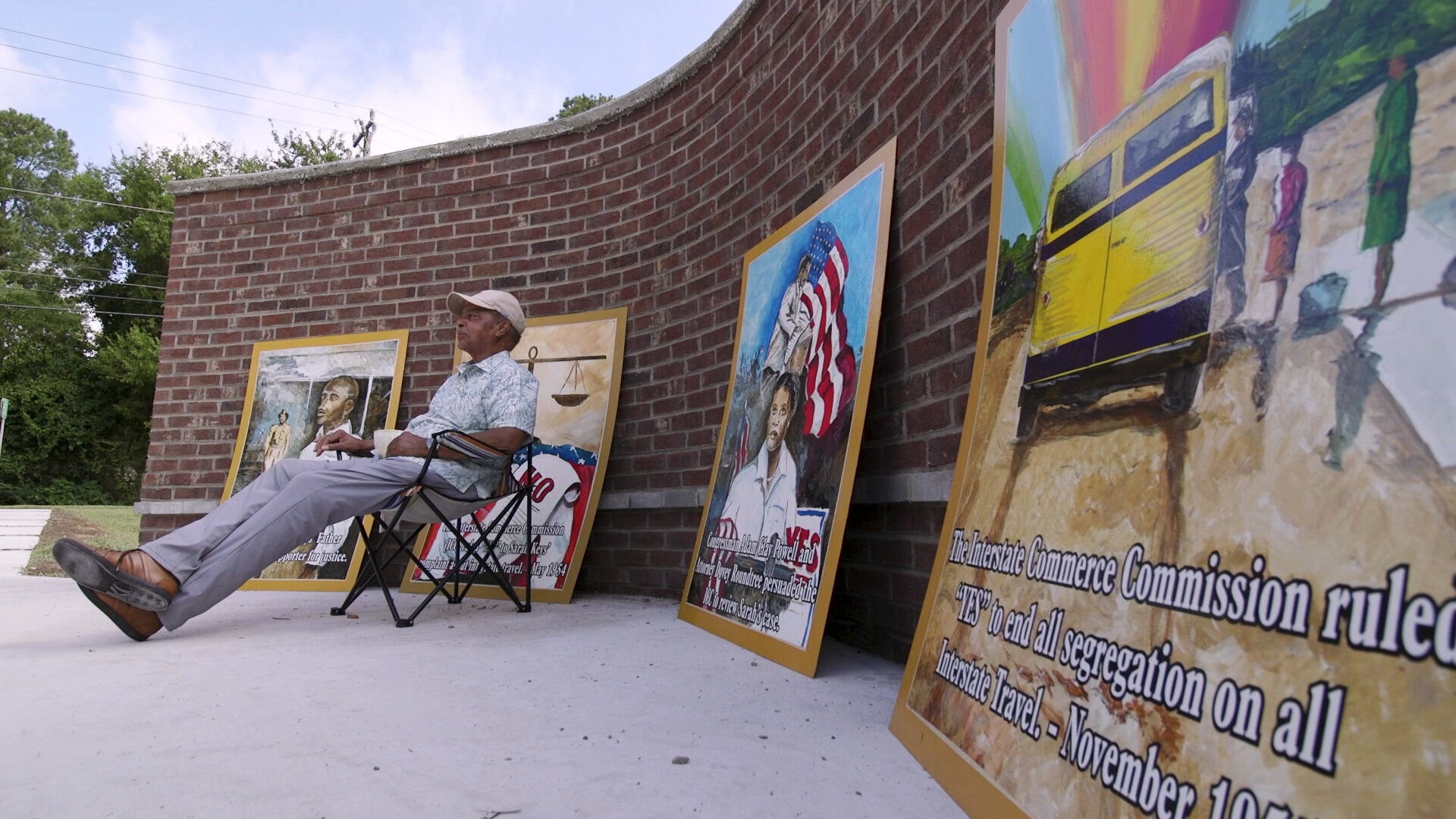
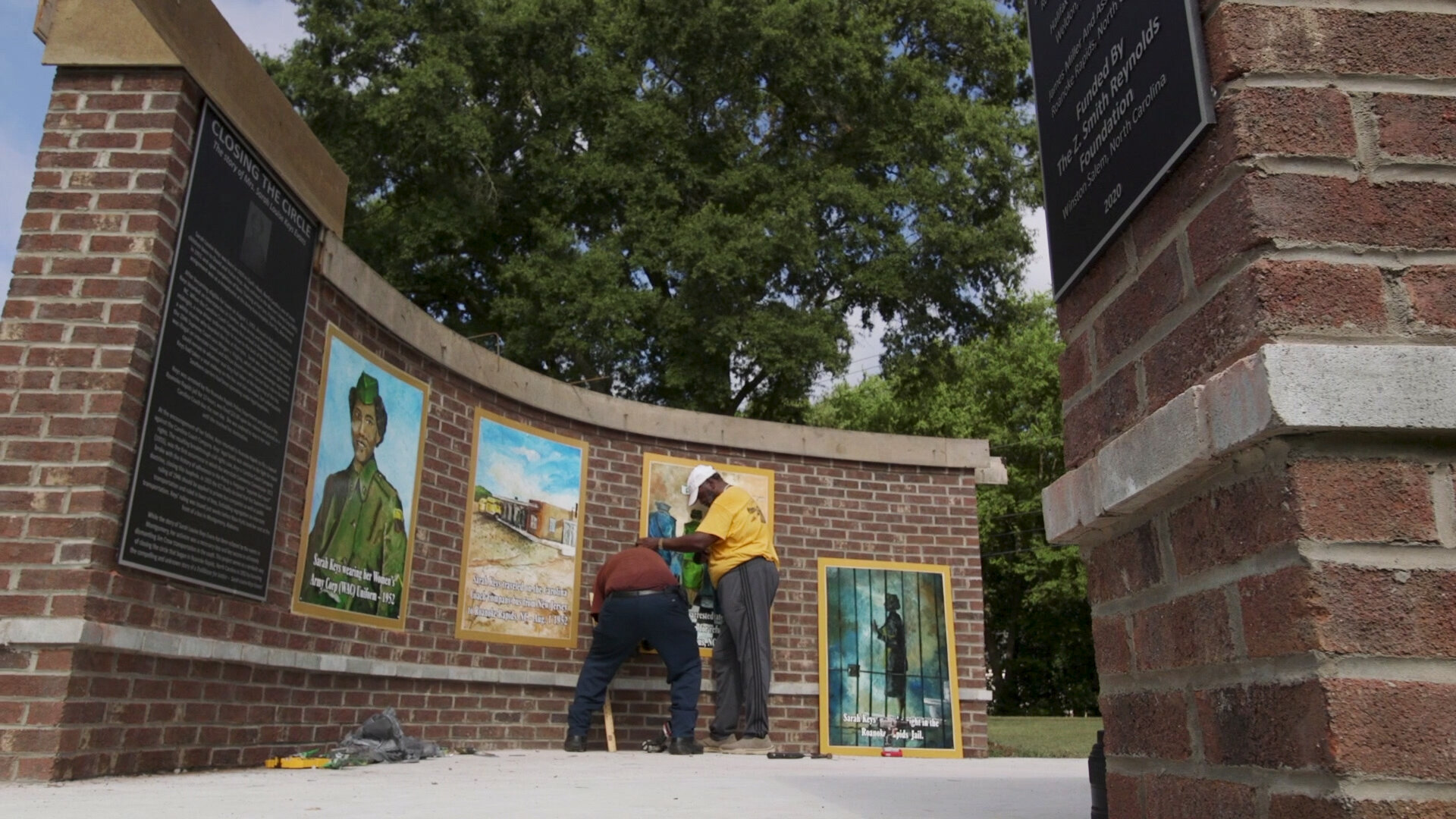
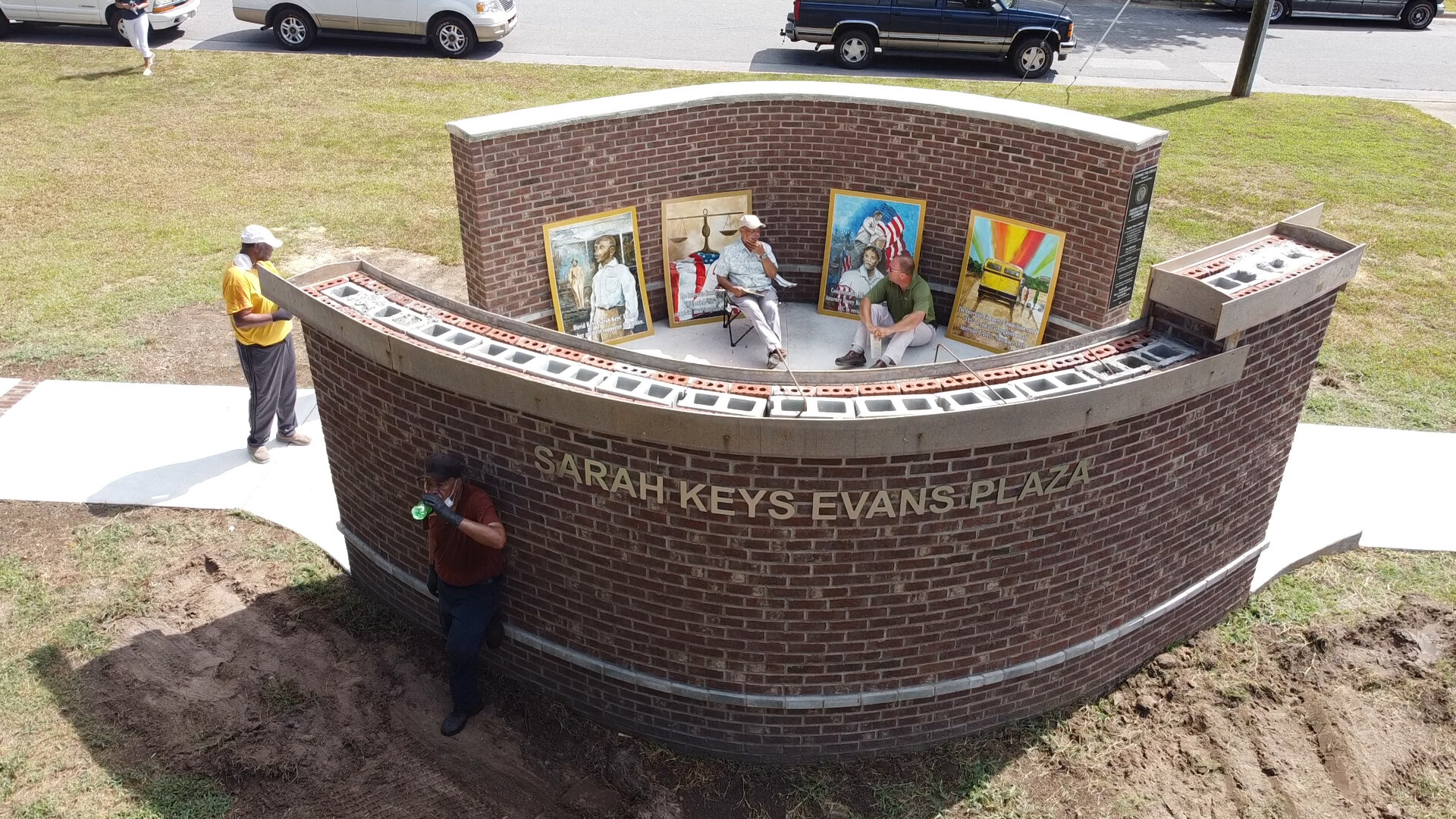
The following segment premiered as a part of the PBS North Carolina Visibly Speaking series, which documents all ten Inclusive Public Art grantee projects from Cohort I.



